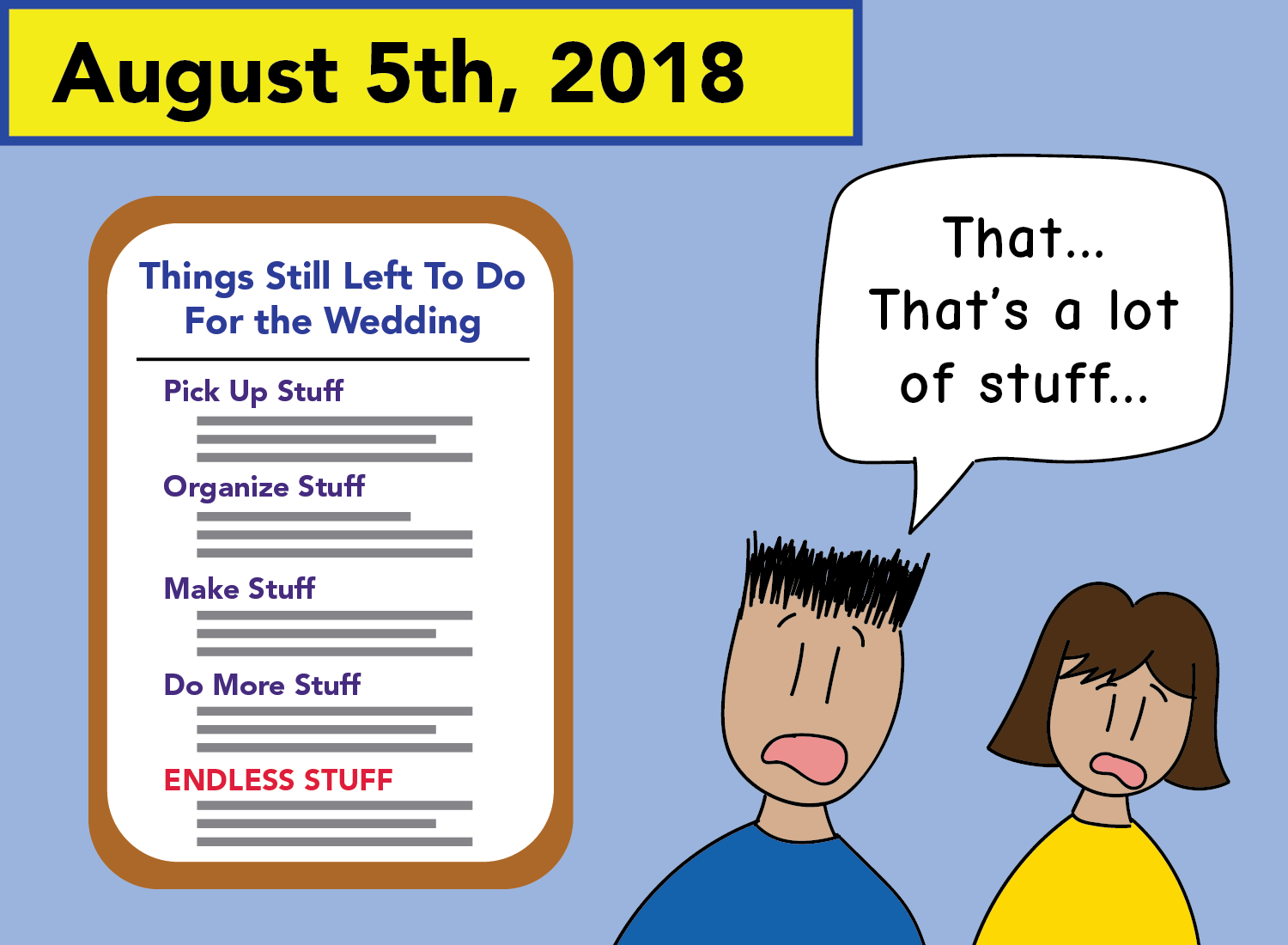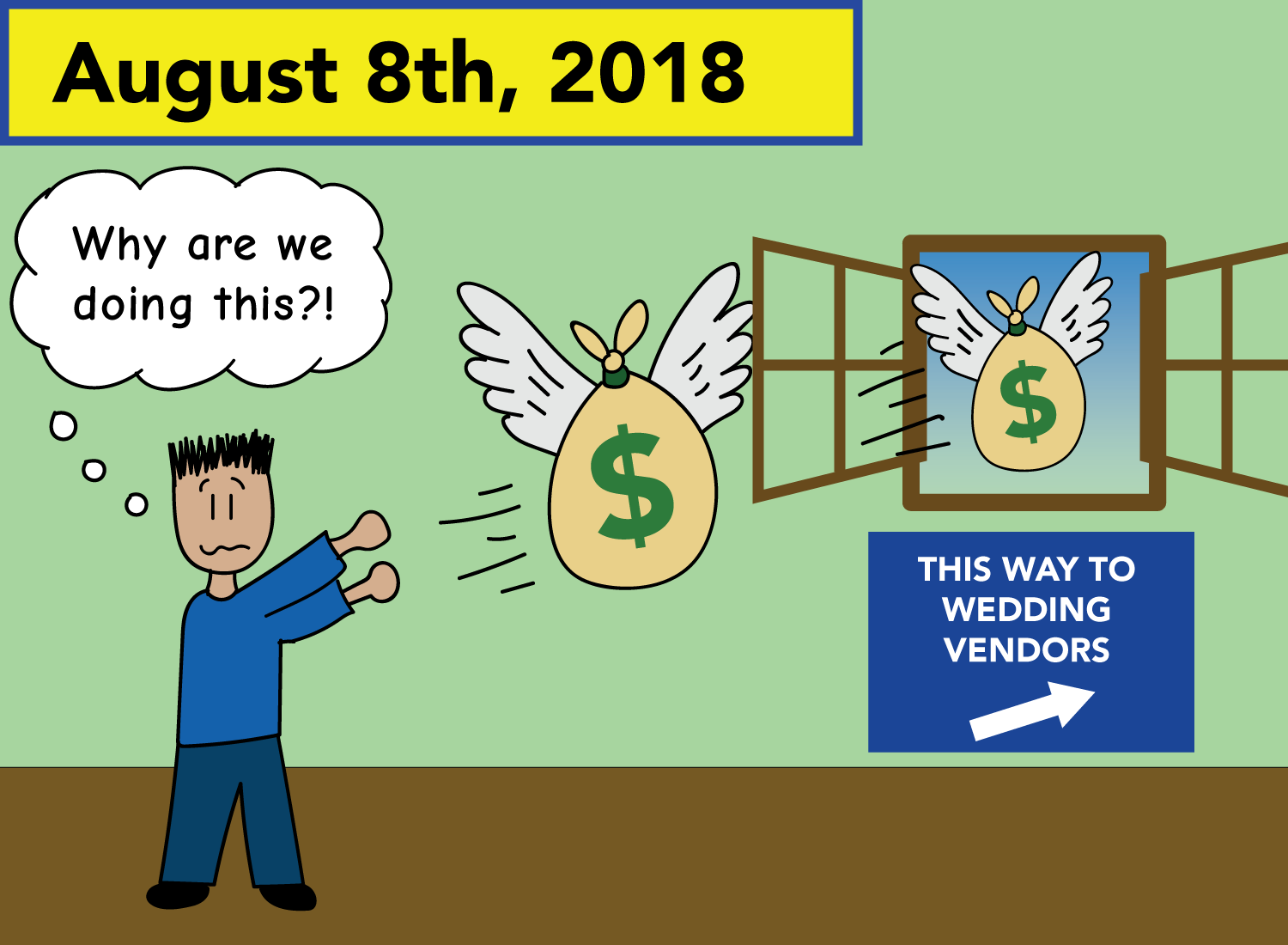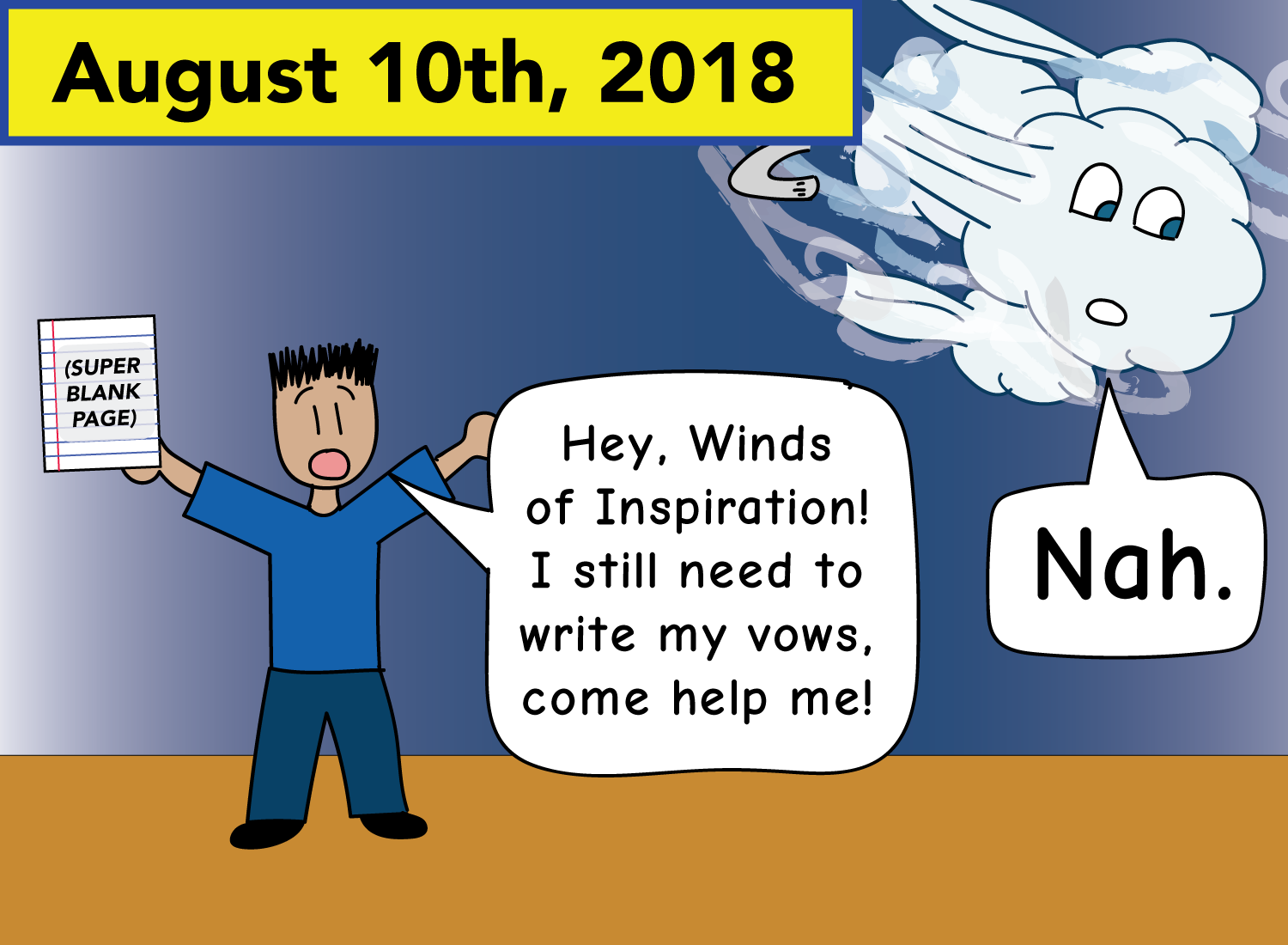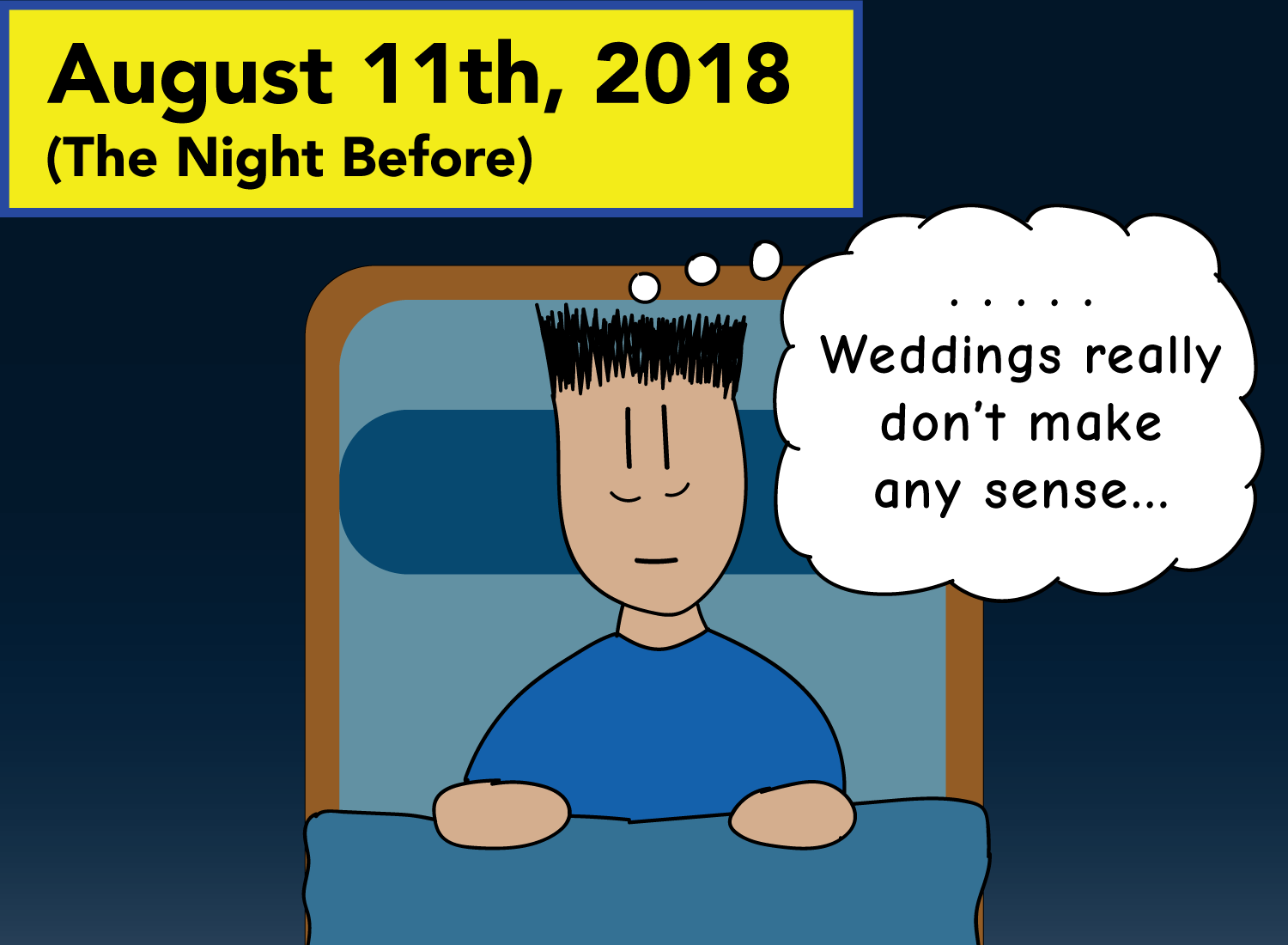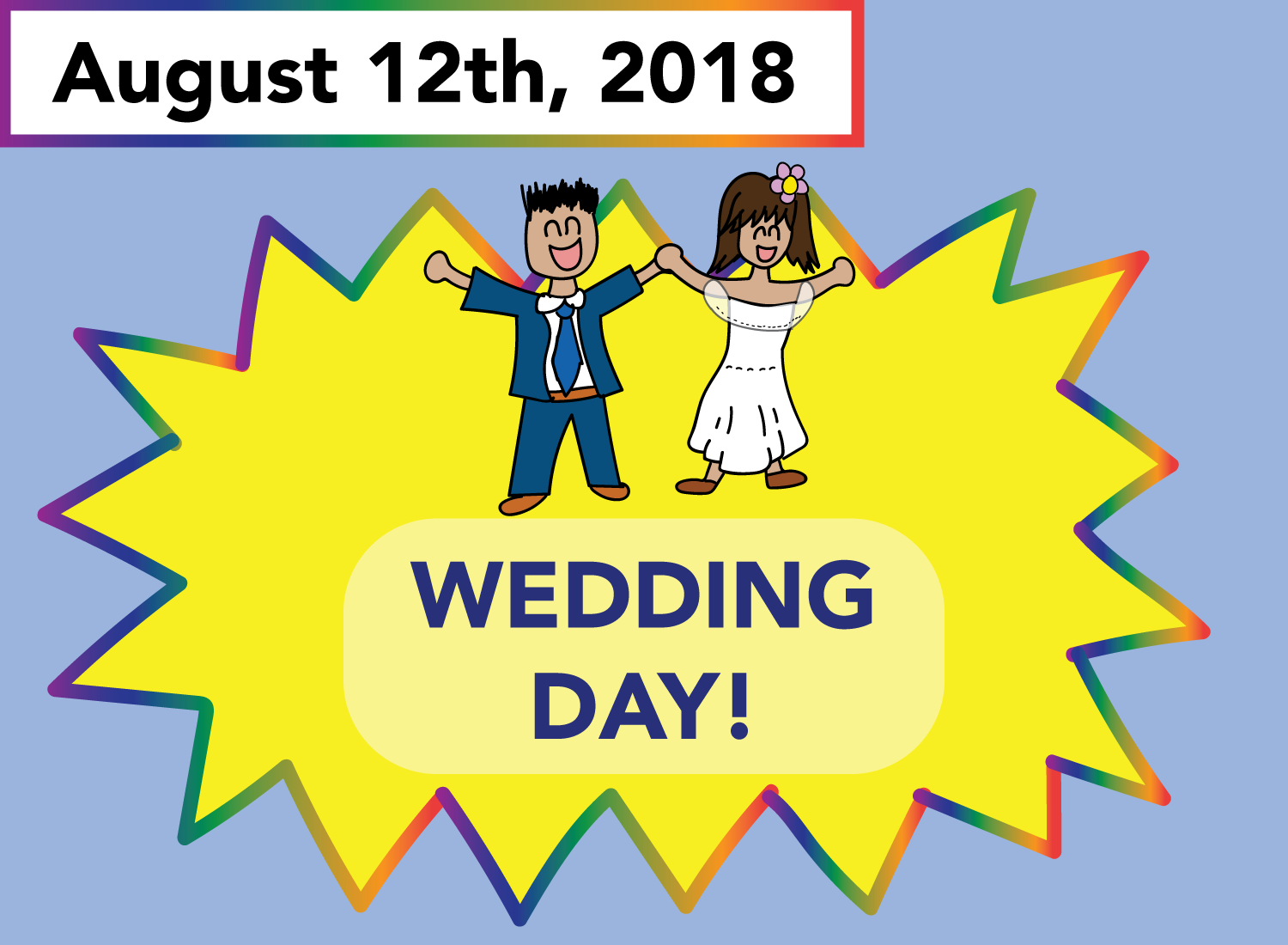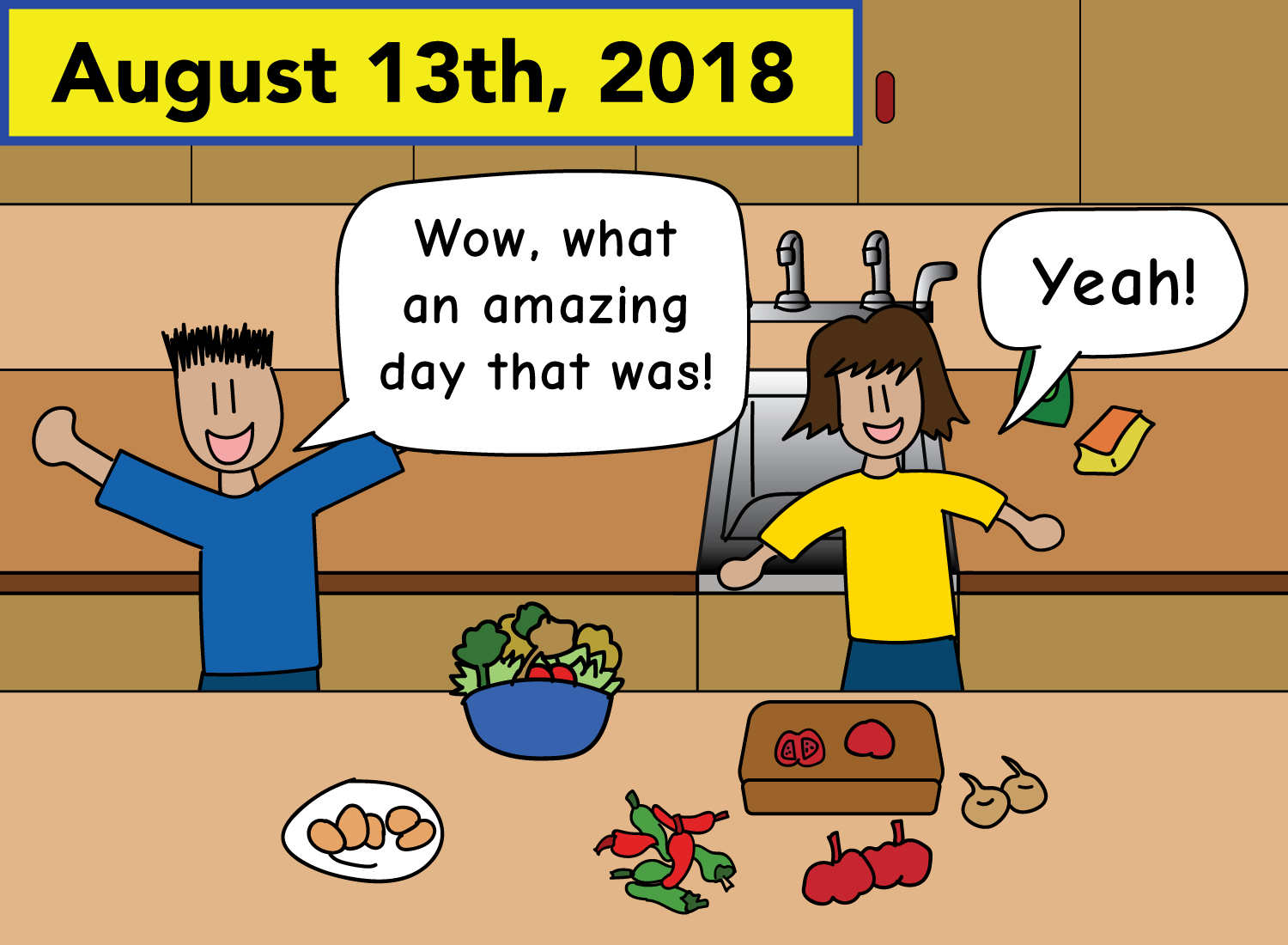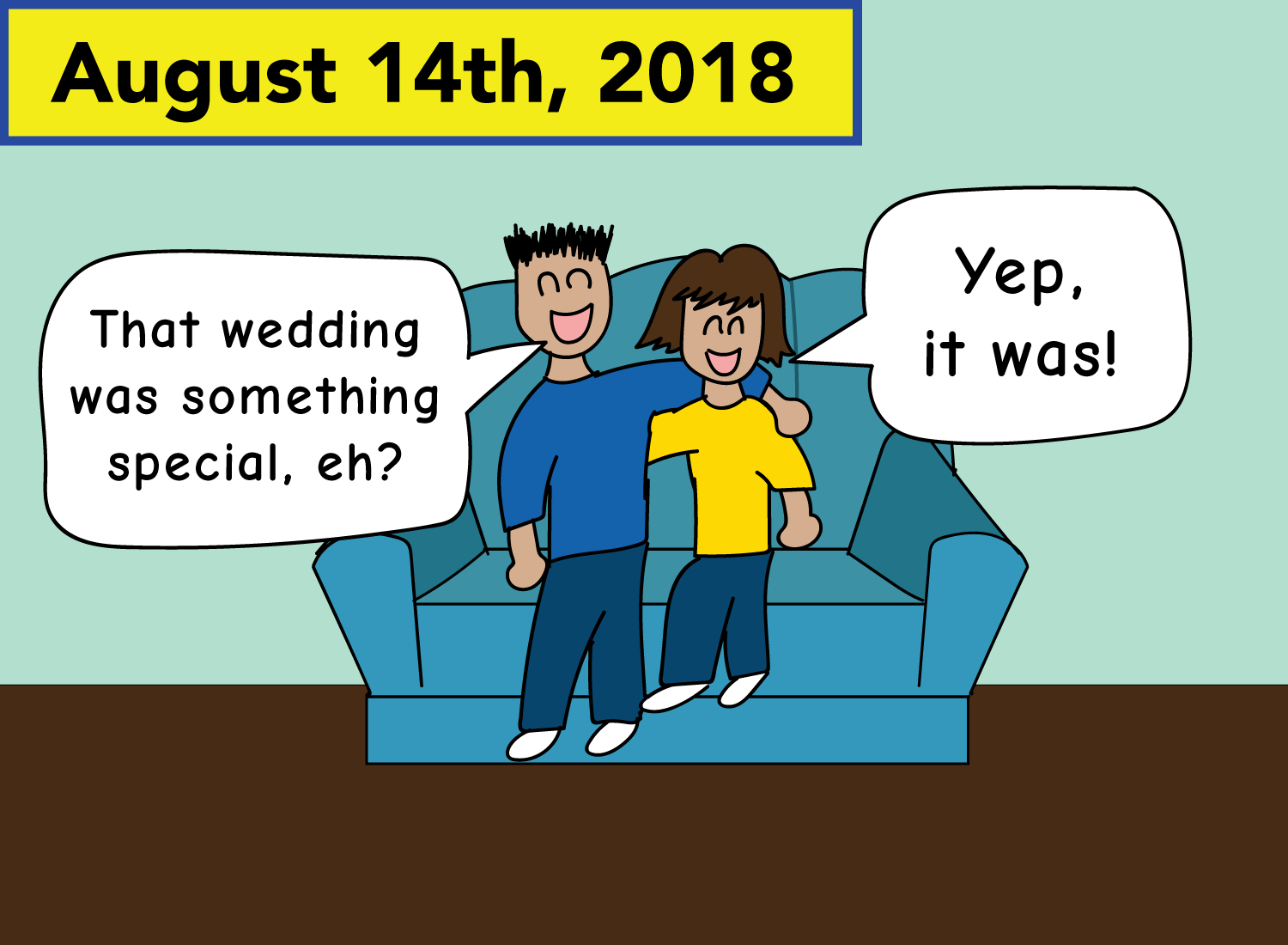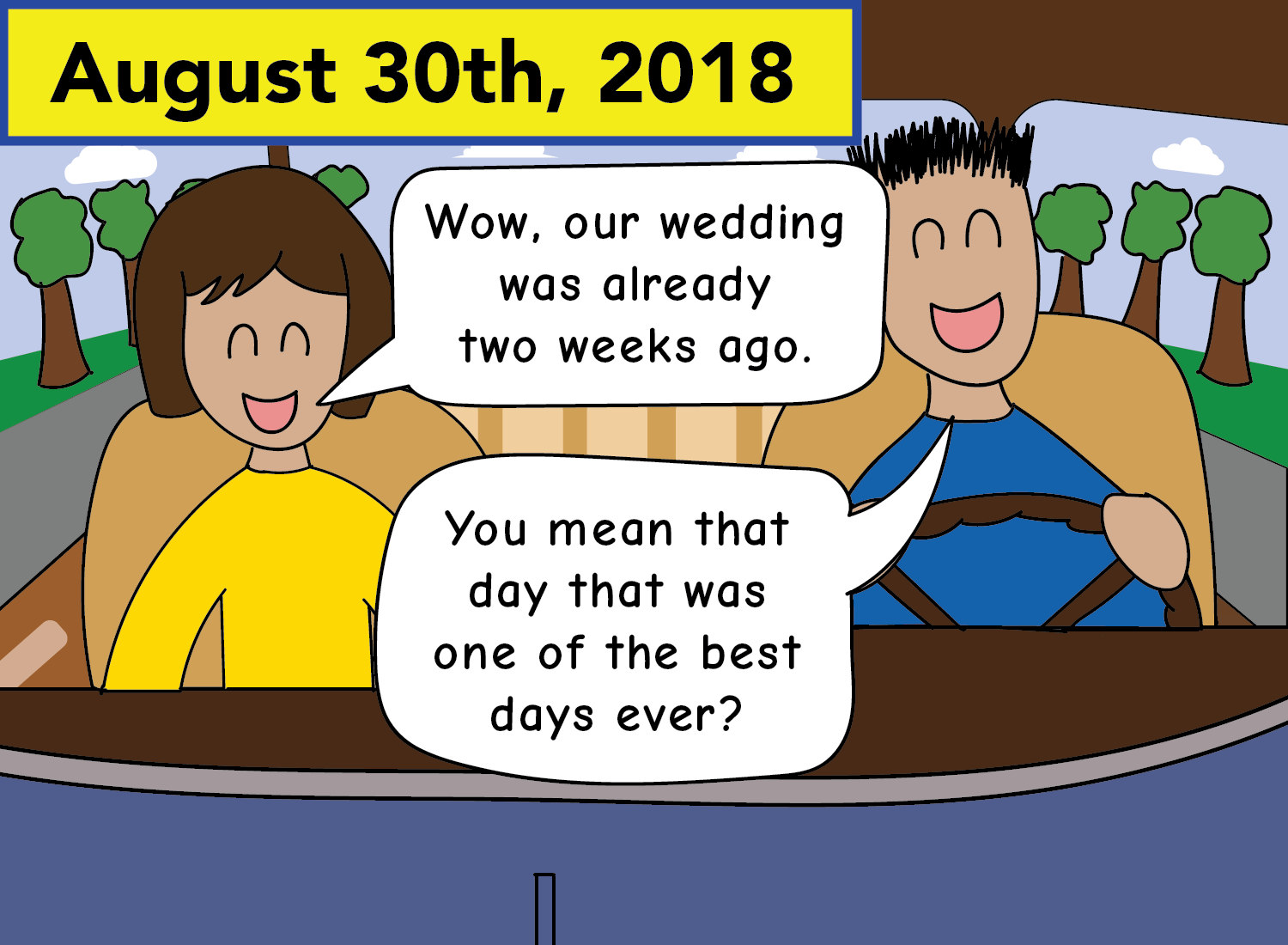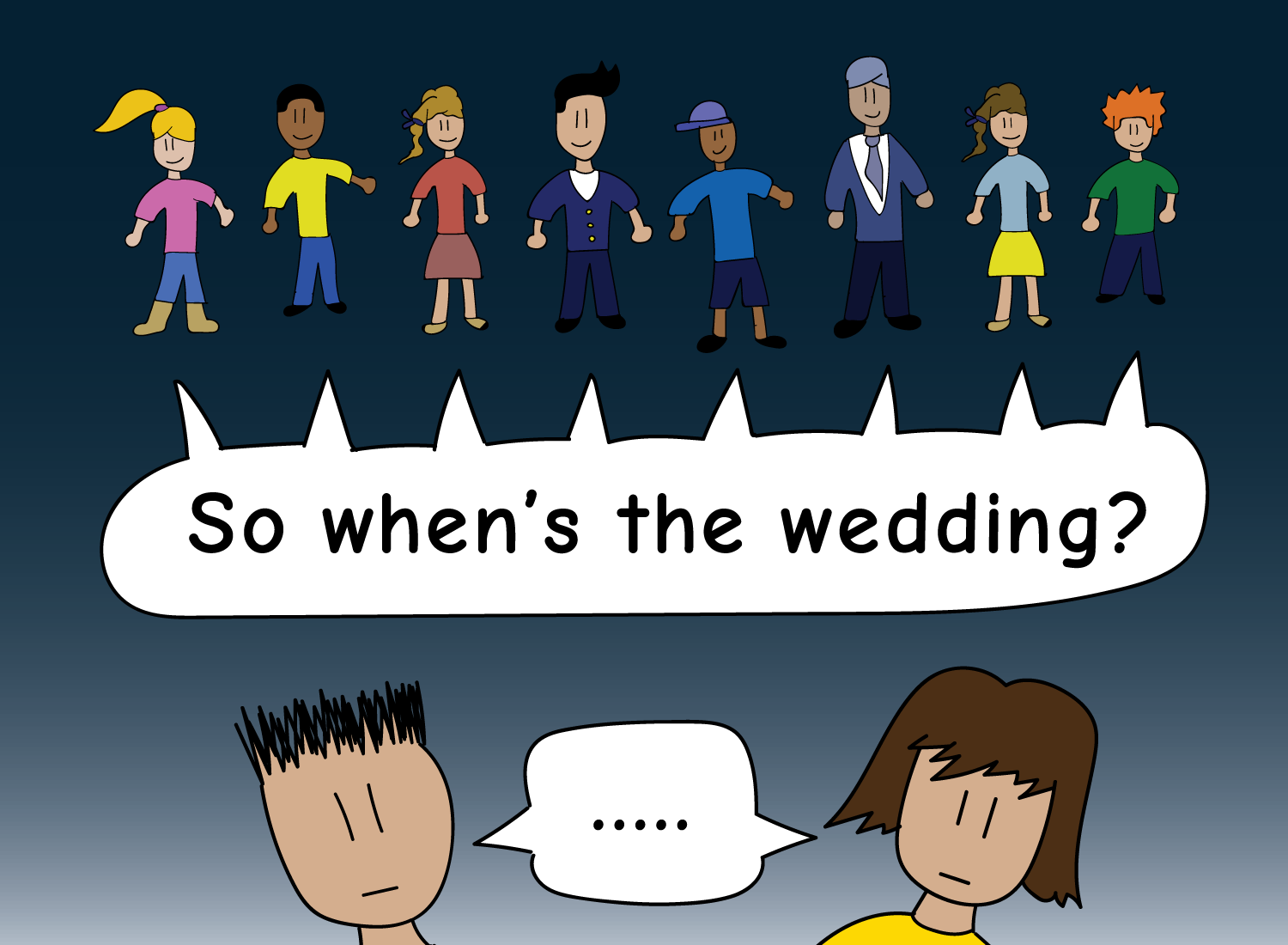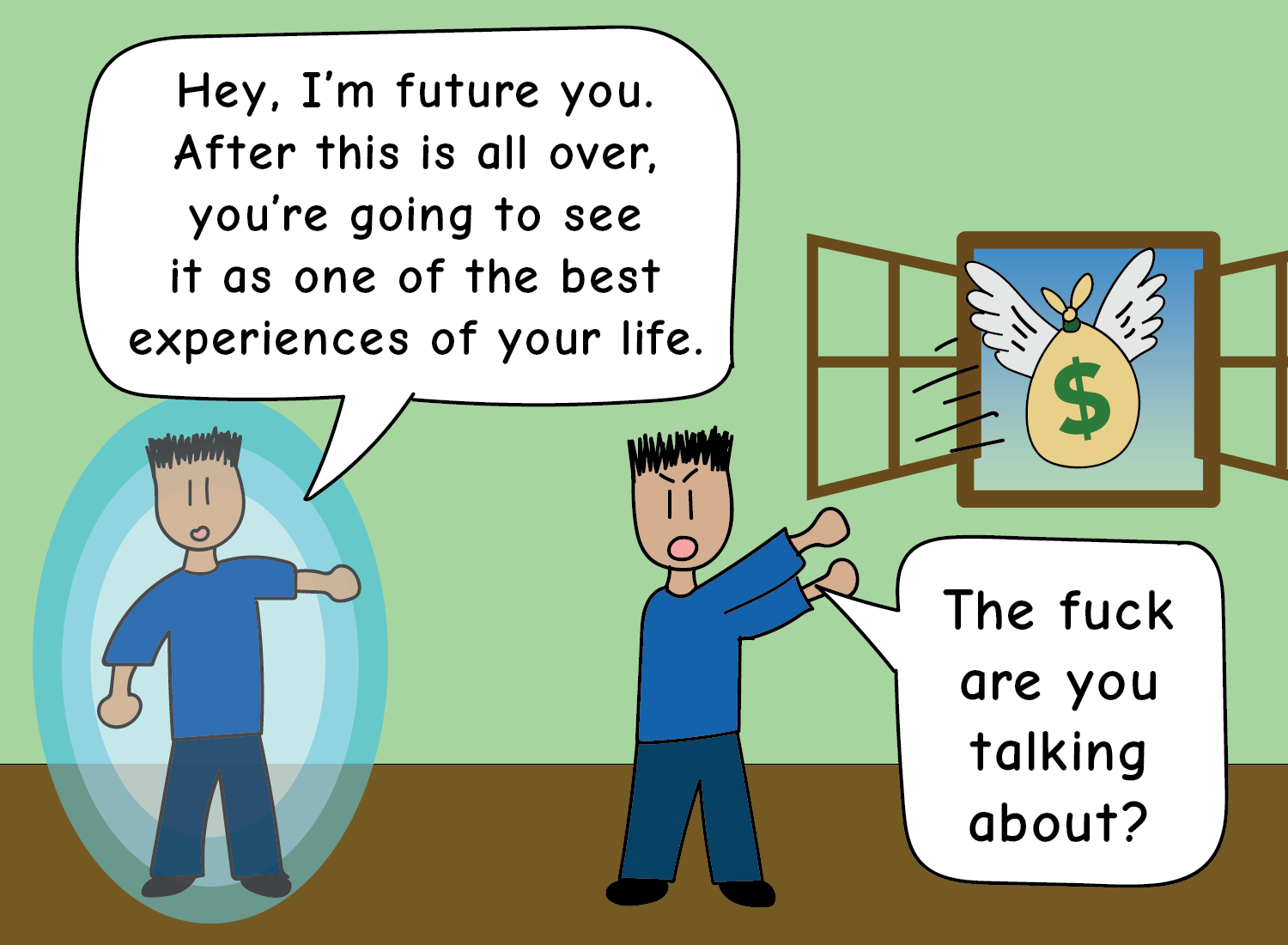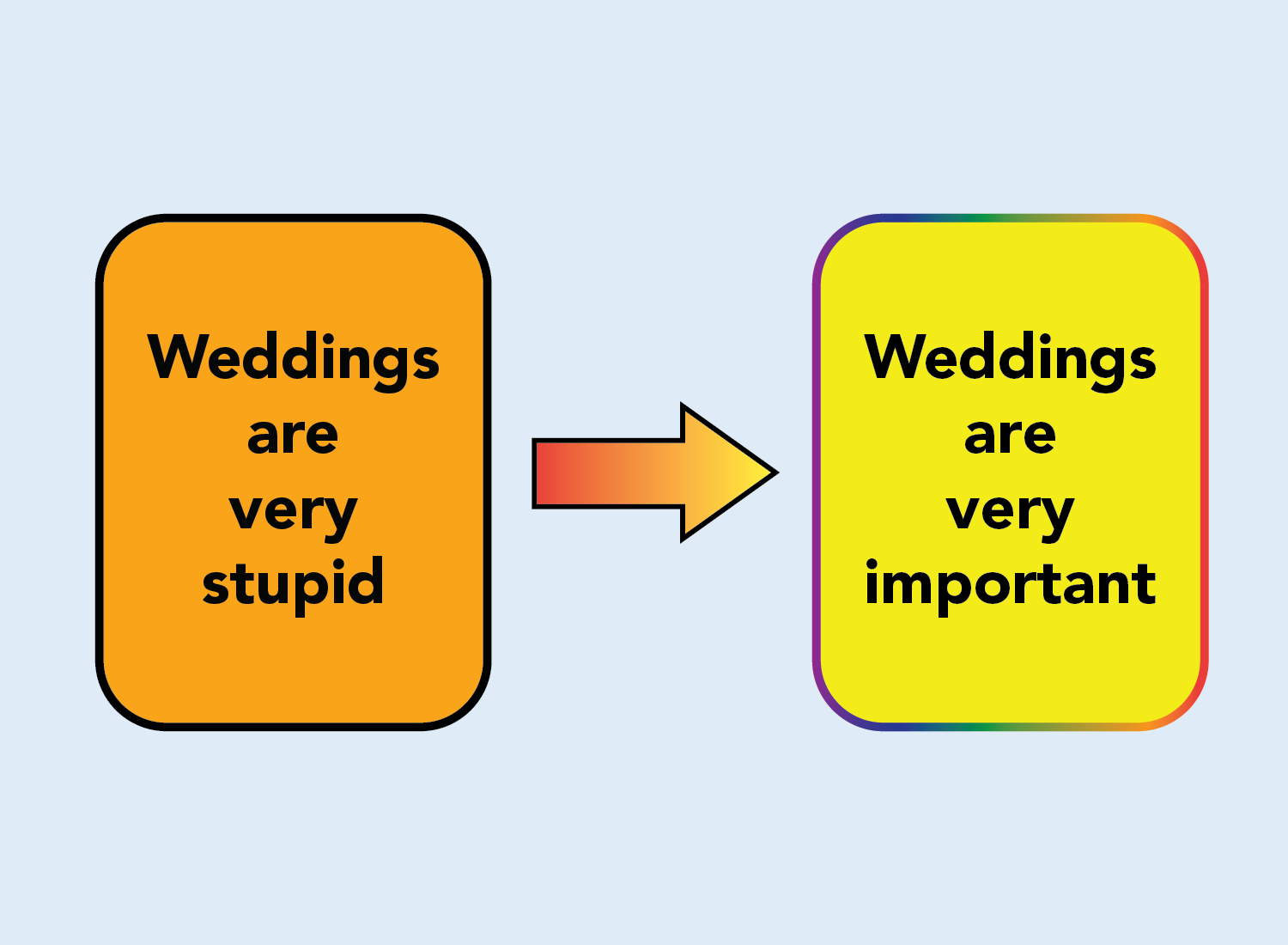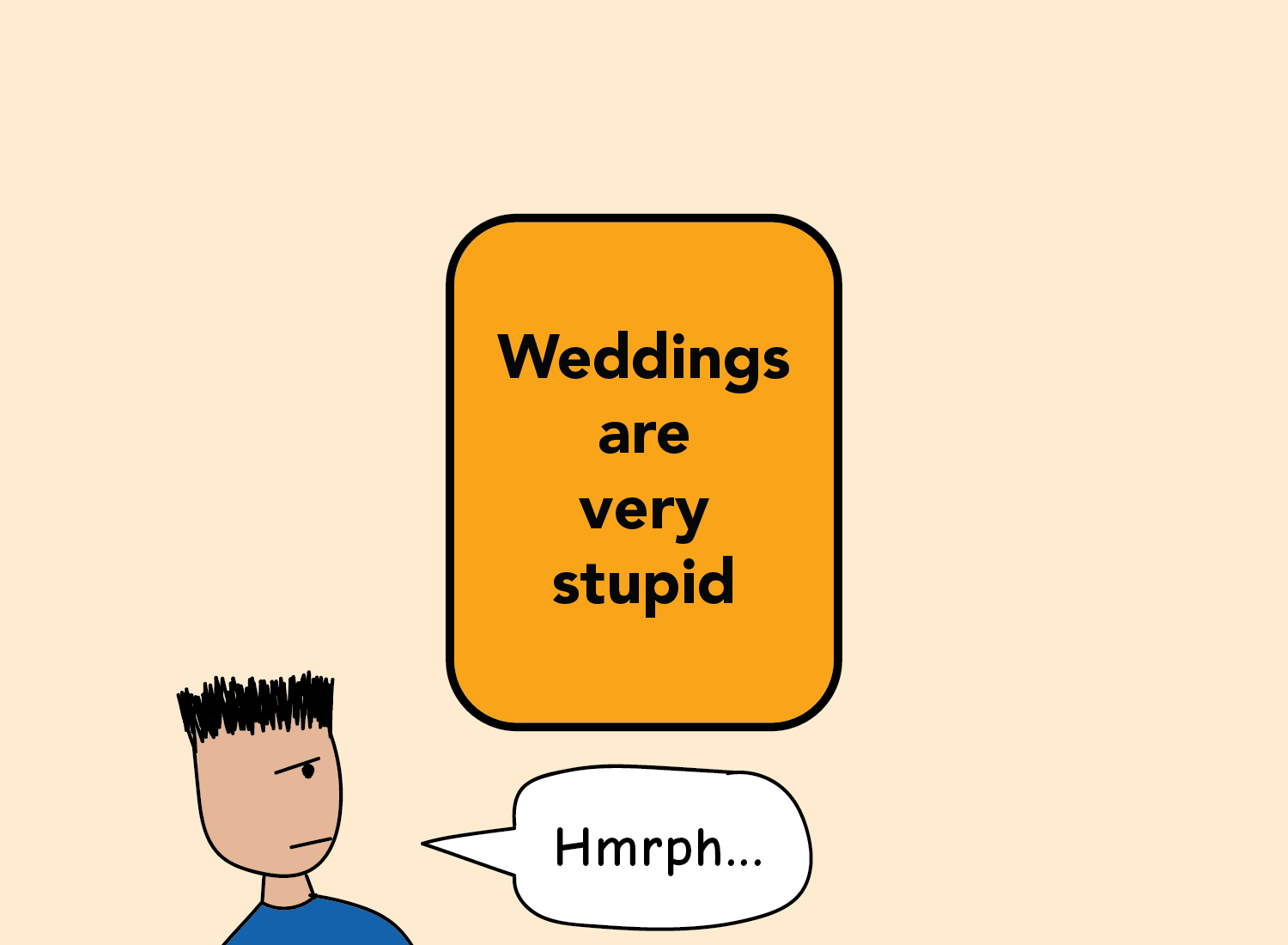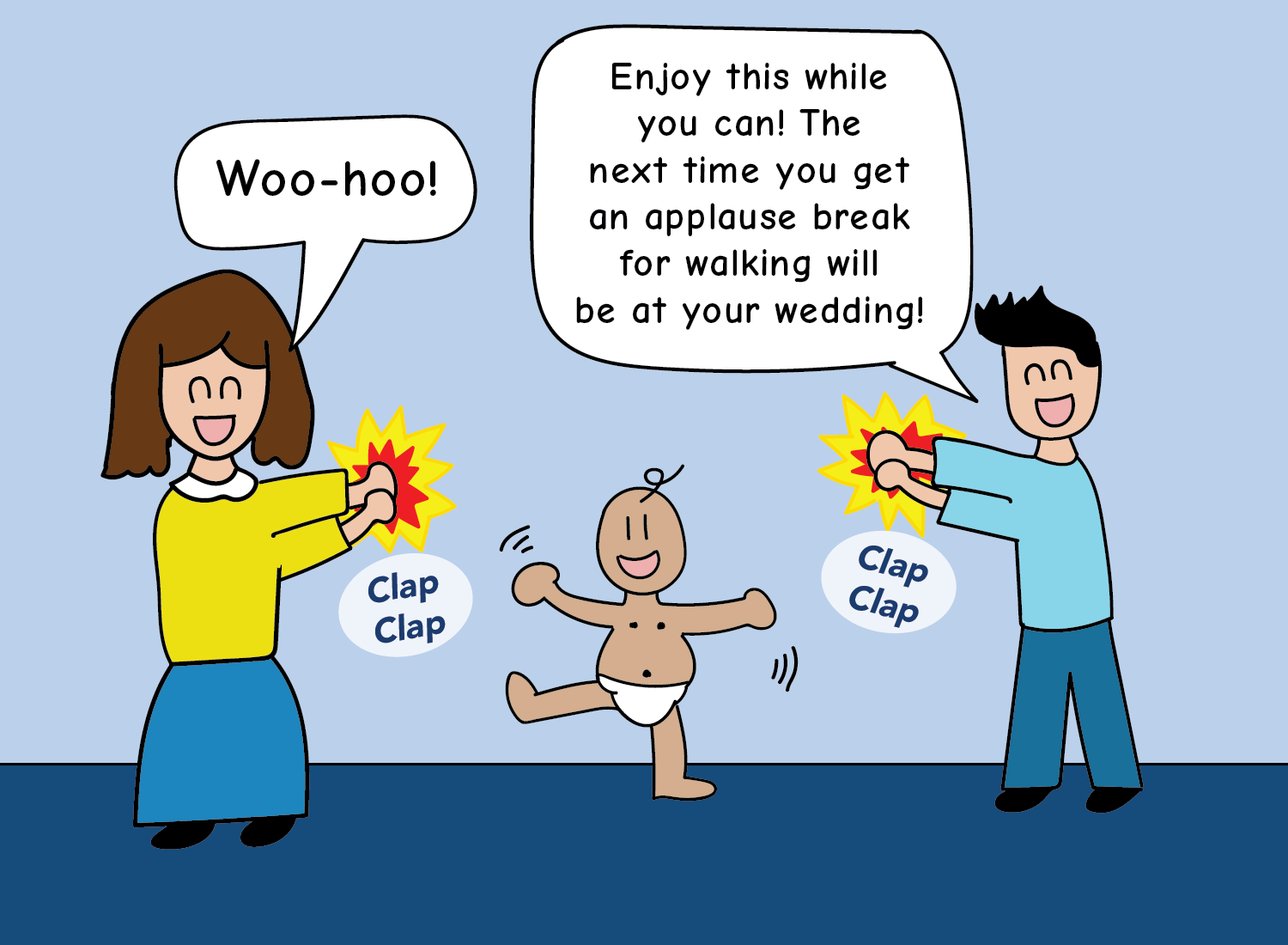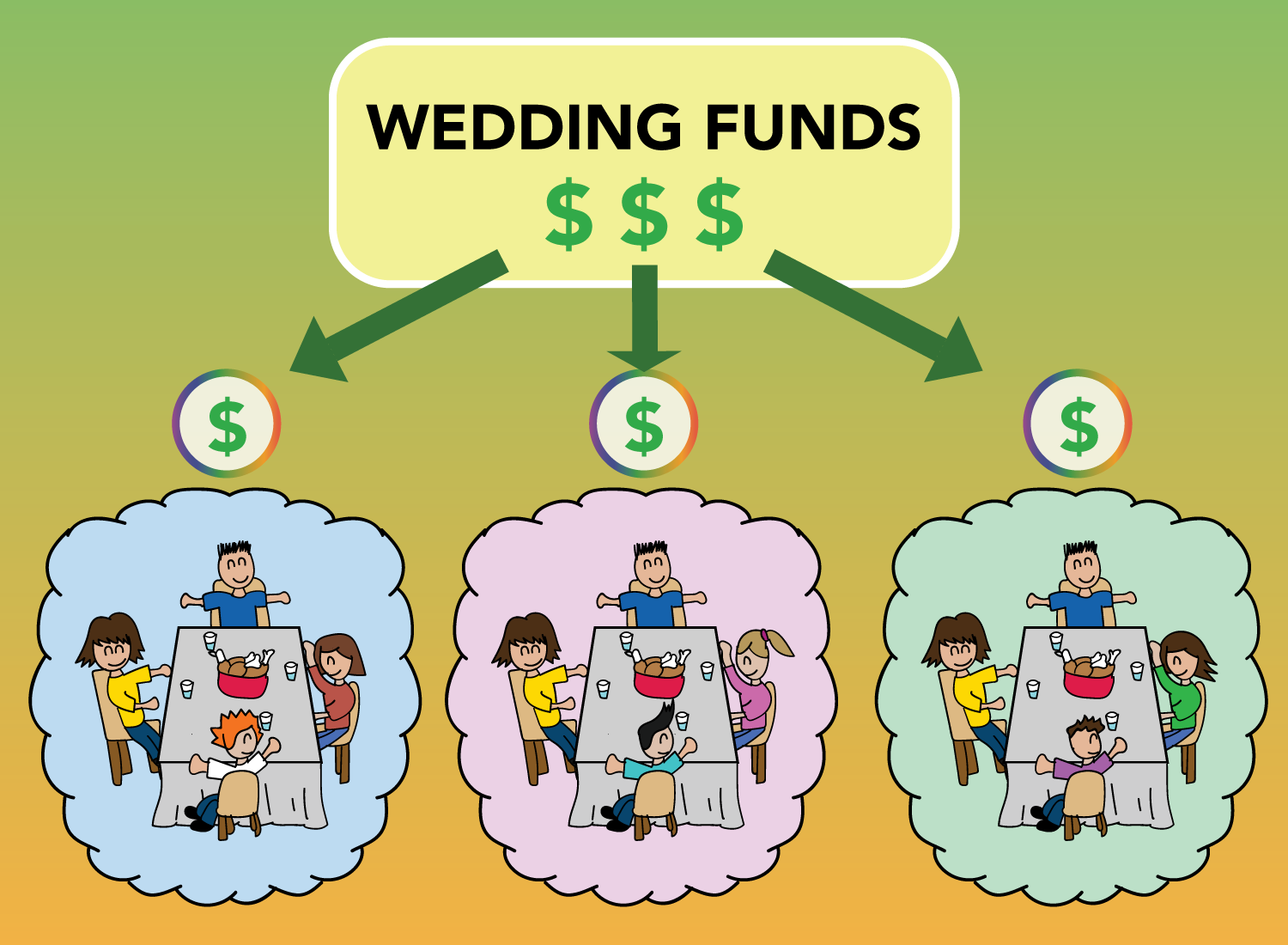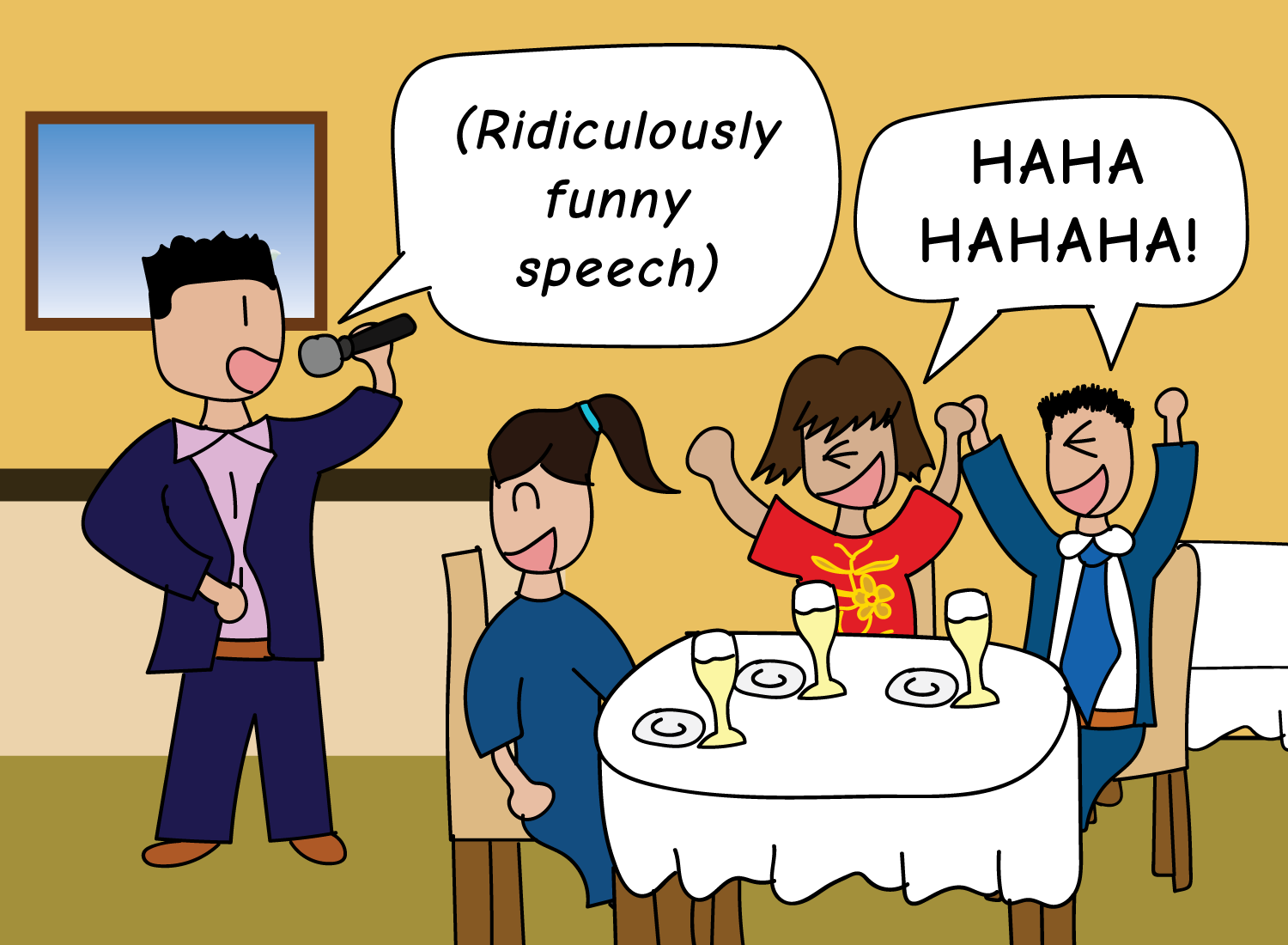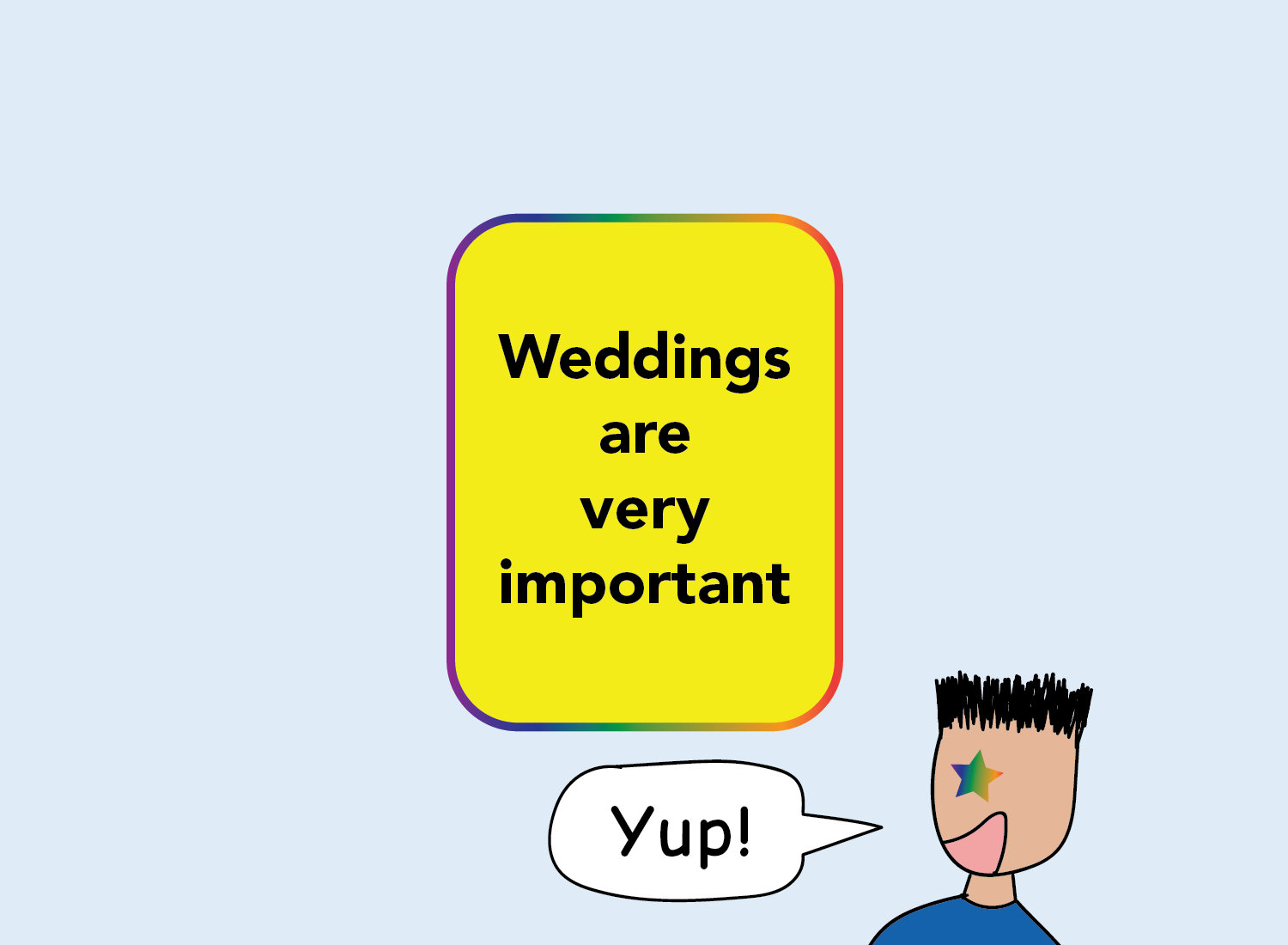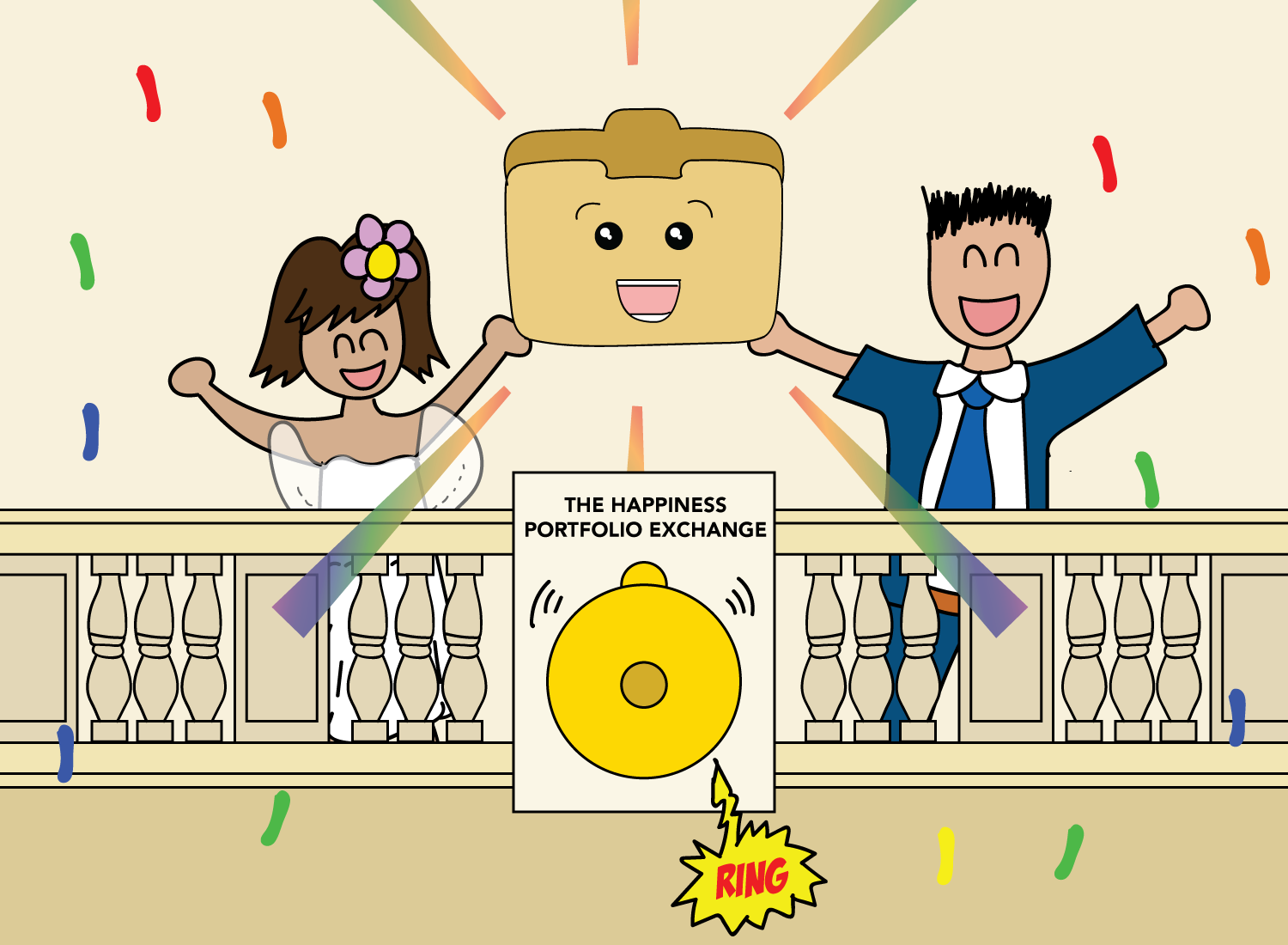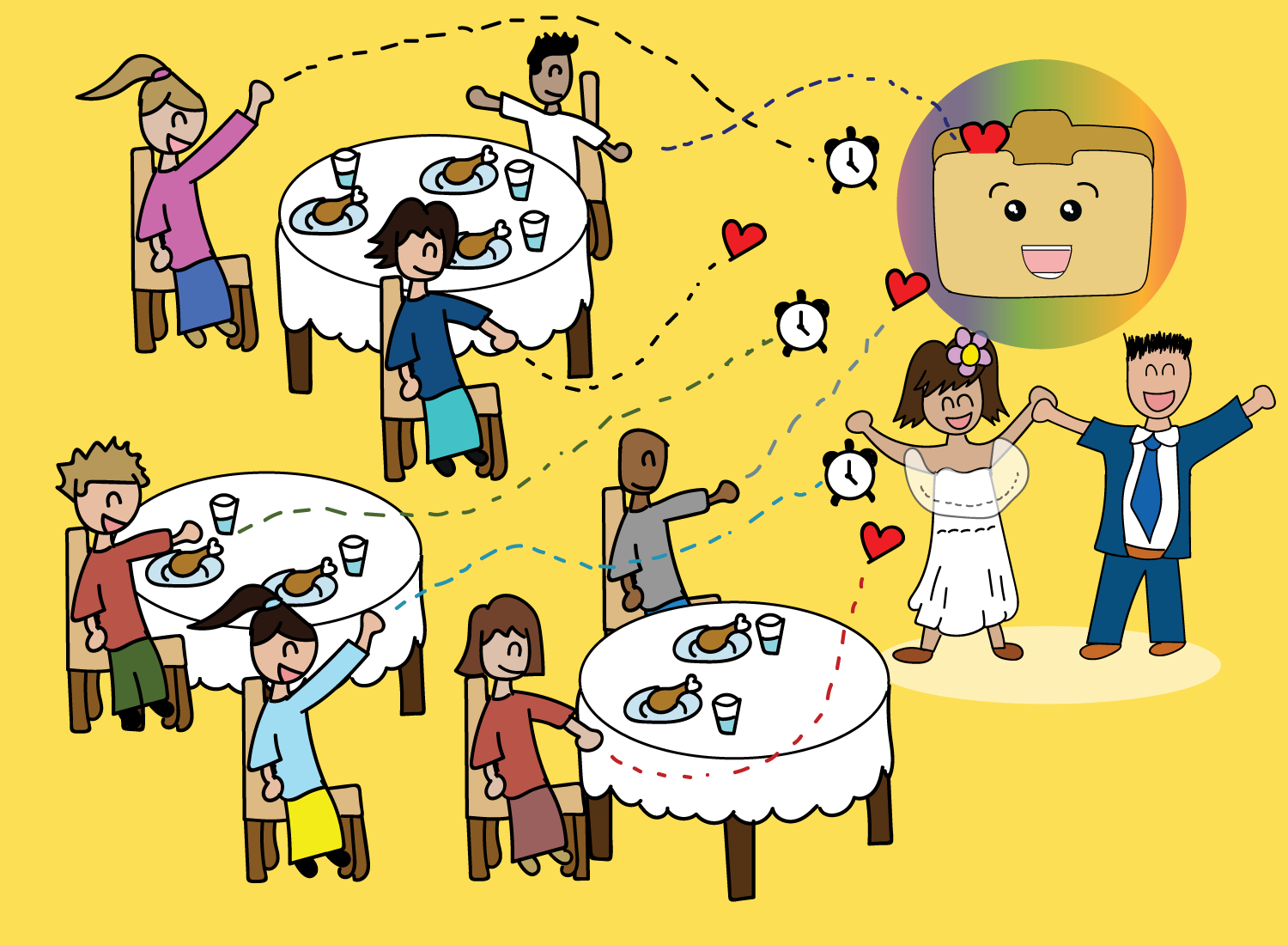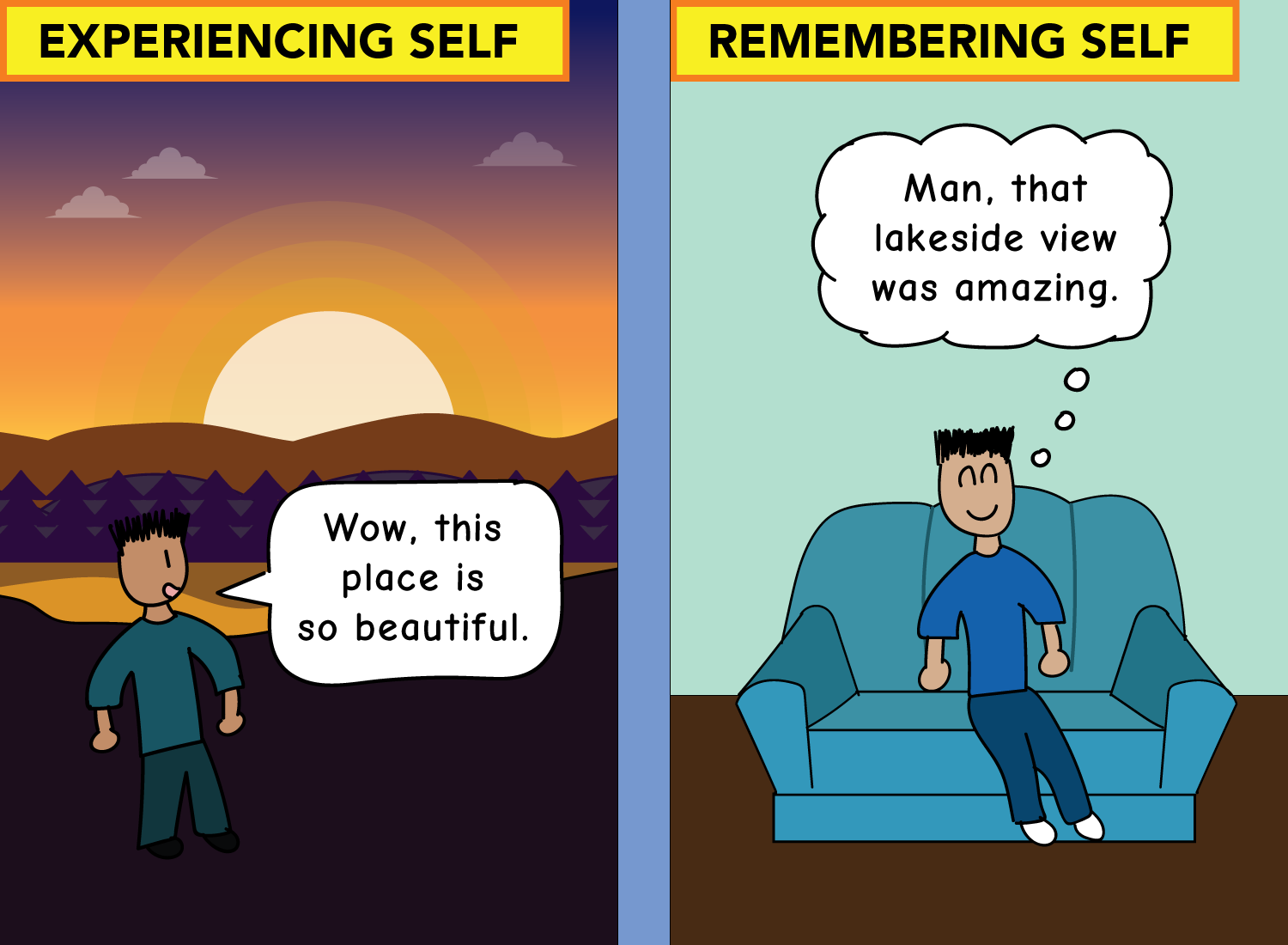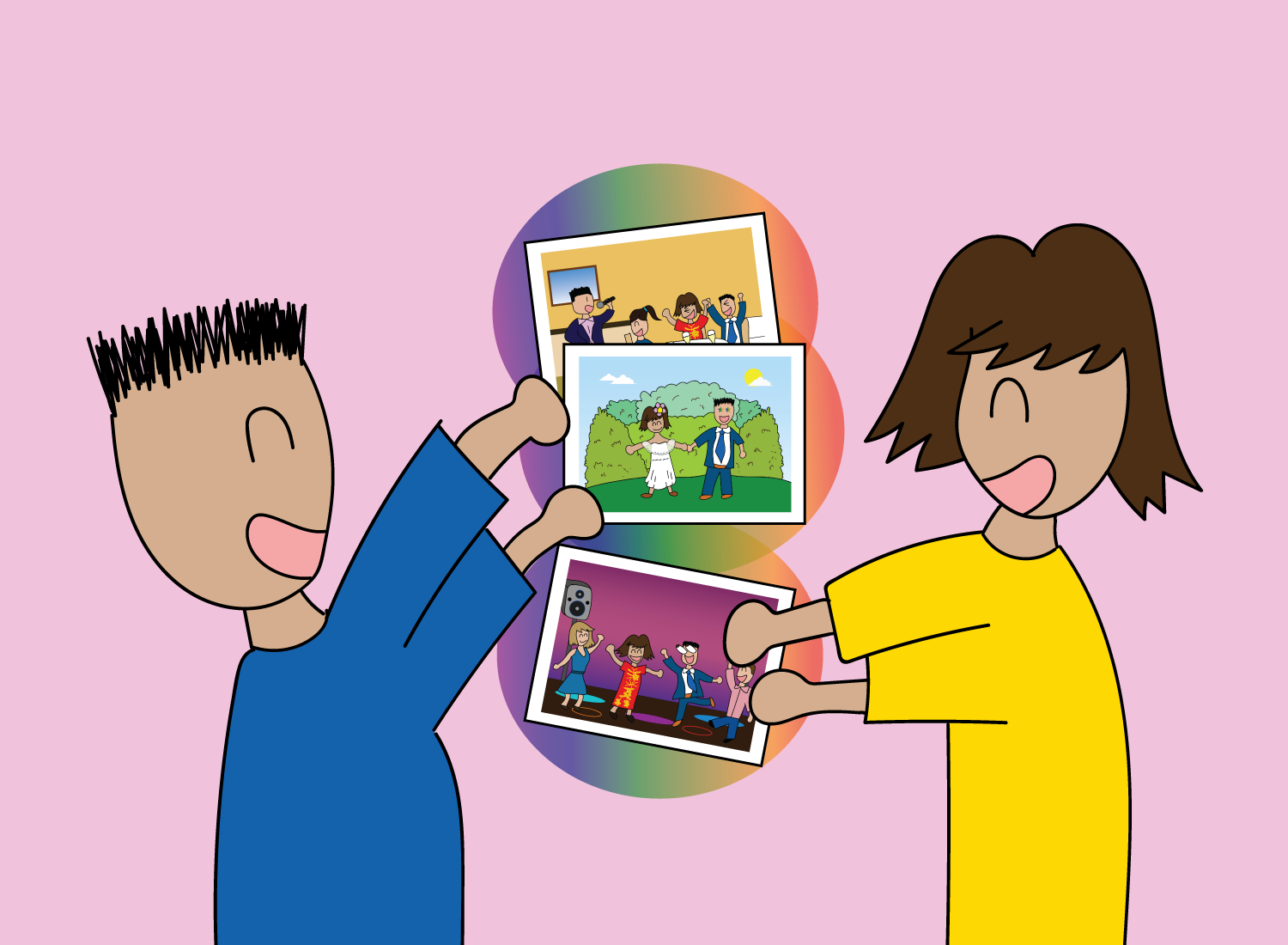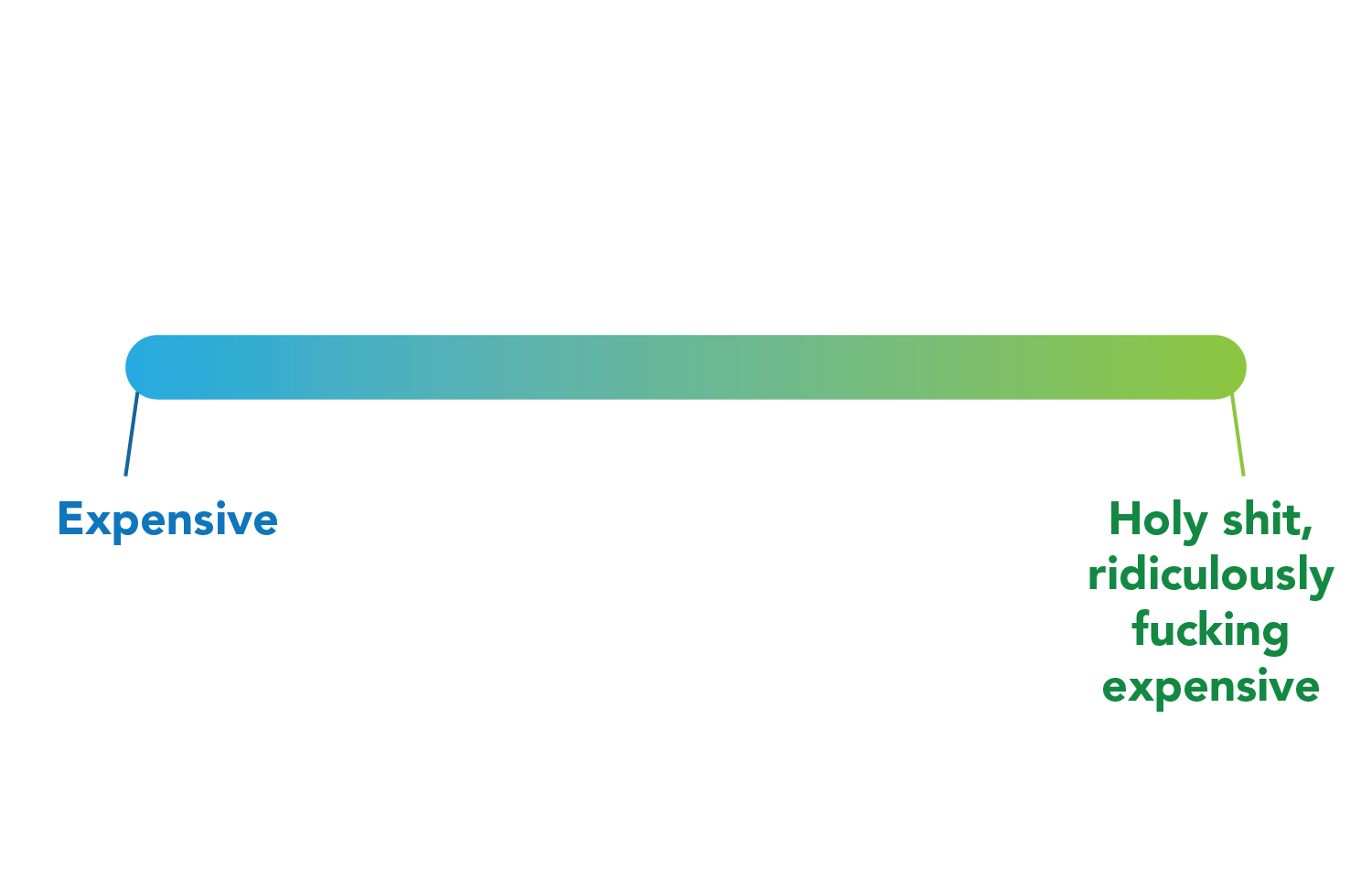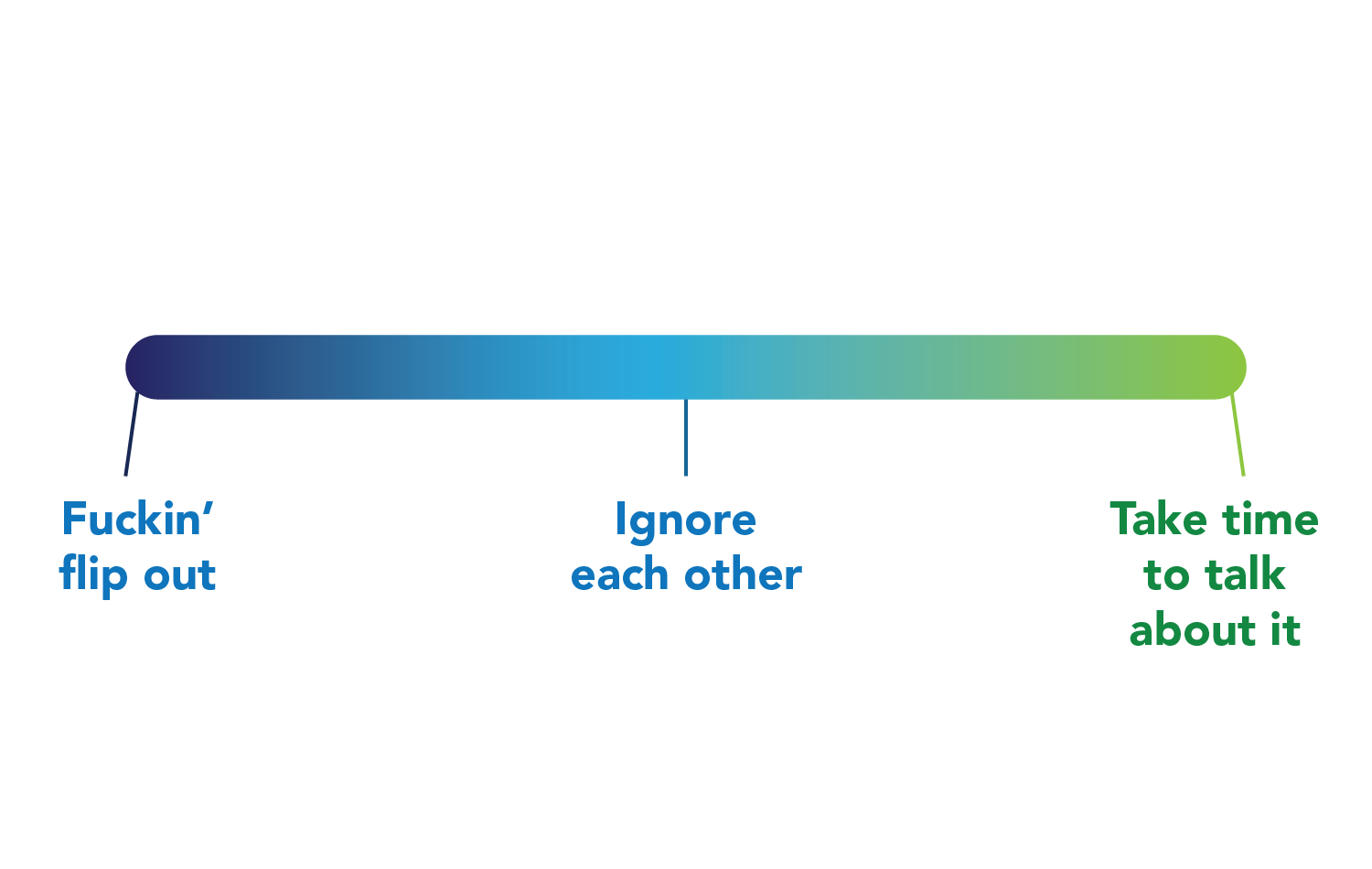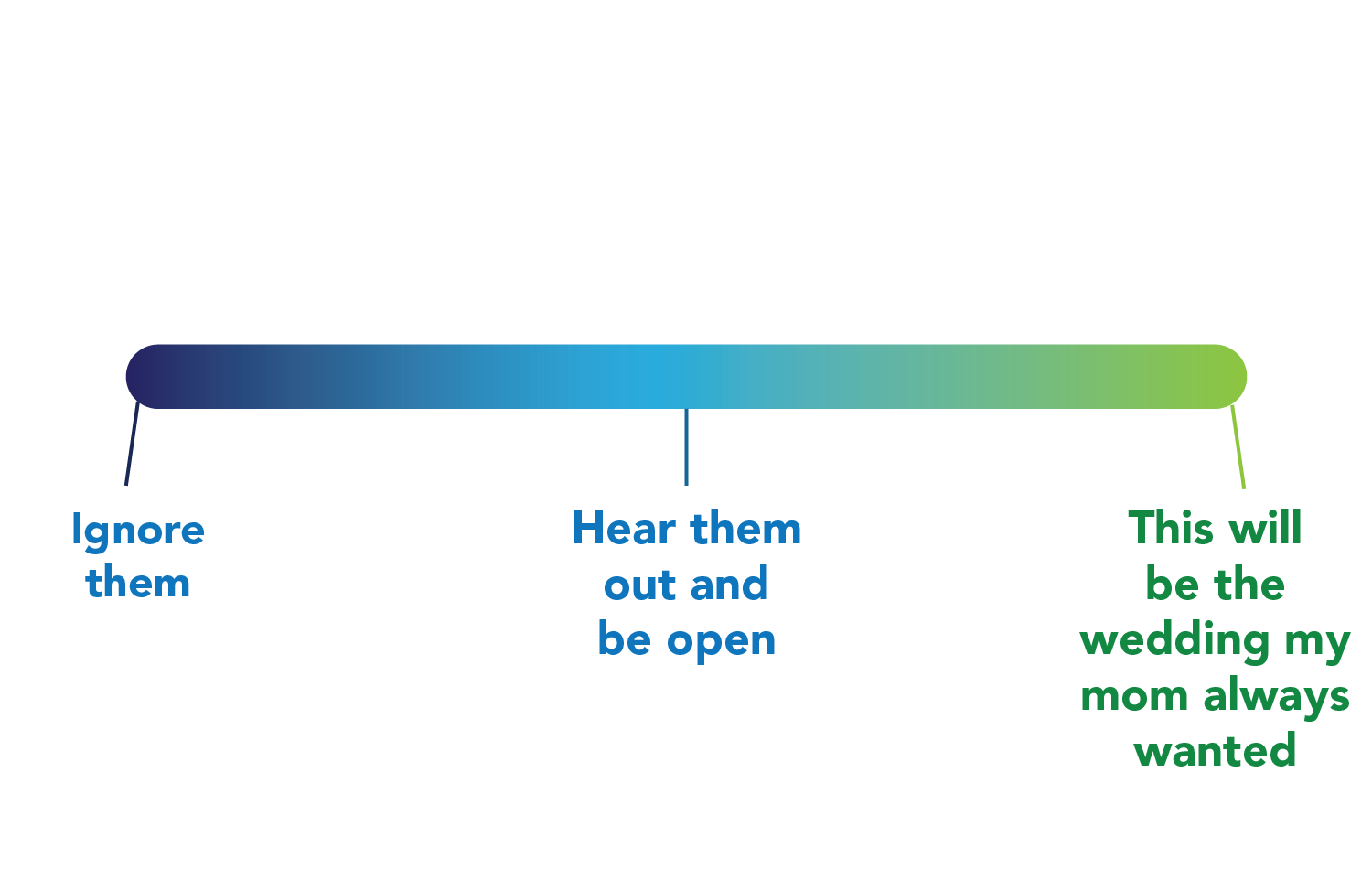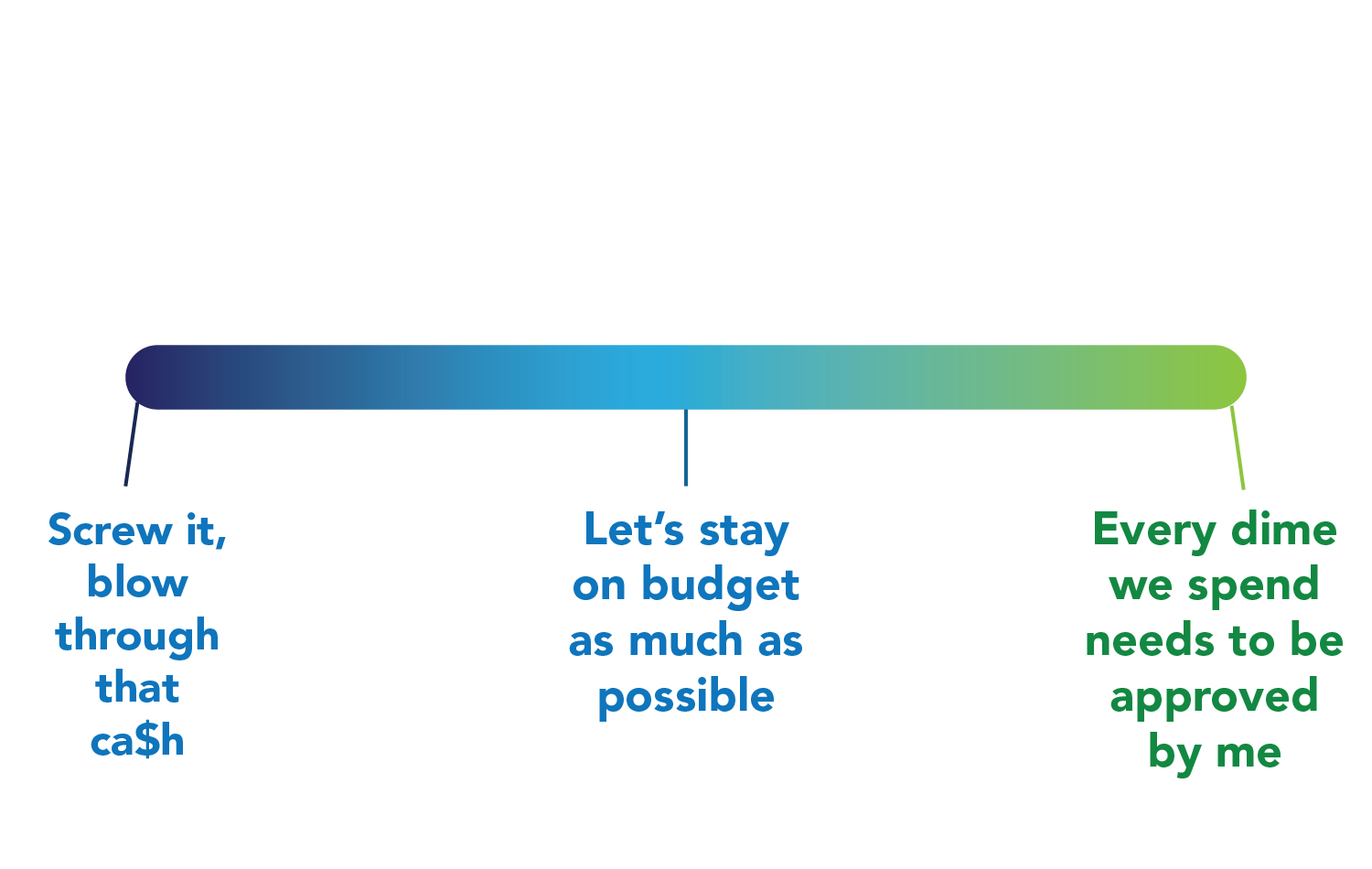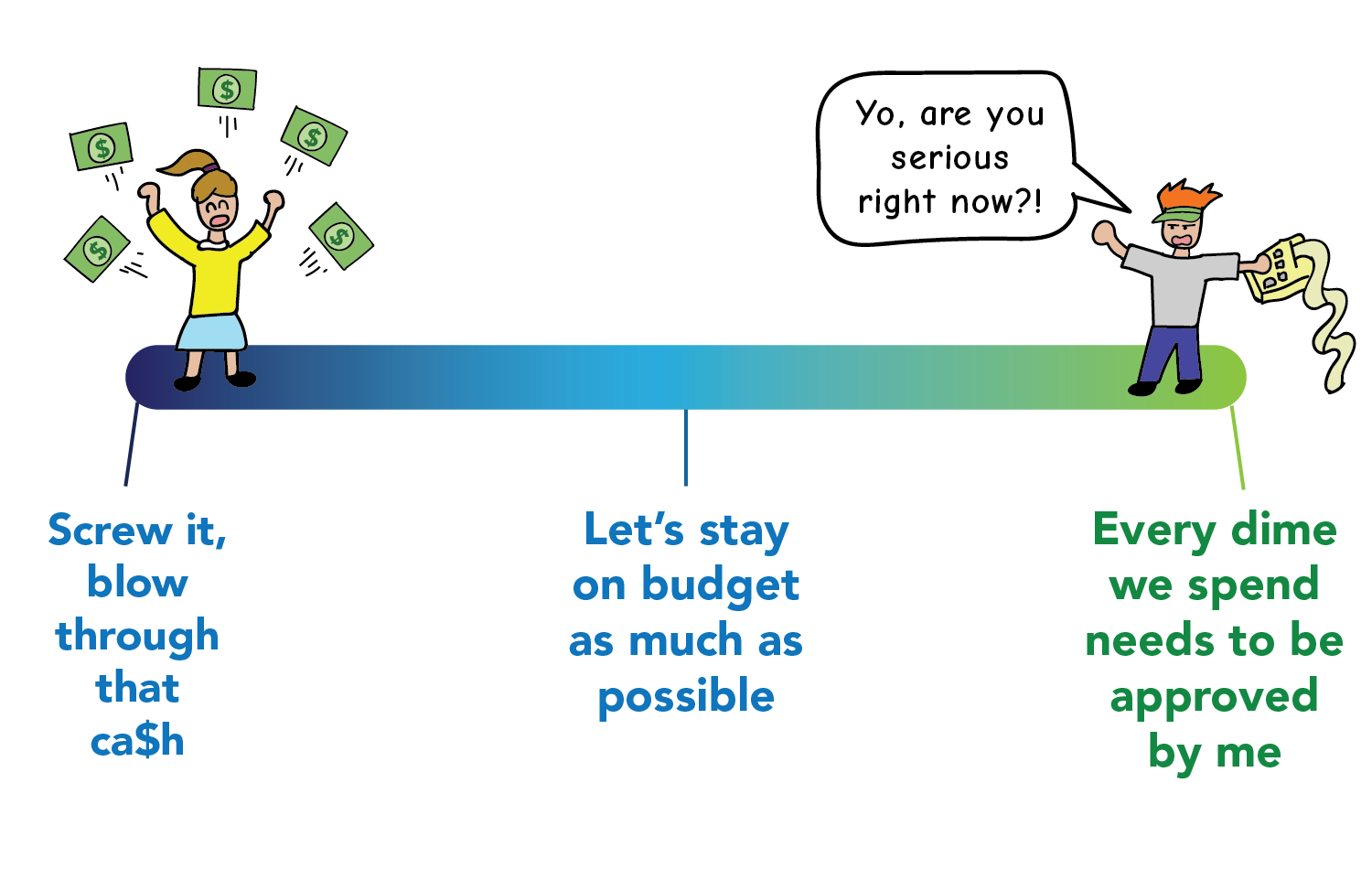Why Having a Wedding Makes Sense
On August 12th, 2018, I married my beautiful wife in the city of Vancouver, British Columbia.
That sentence sounds carefree, wonderful, and full of flowery imagery, but there were a lot of emotional things happening before, on, and after that date.
Here’s a summary of what was going on before the 12th:
Then came the flurry of the day itself:
Which led to some interesting insights:
To two weeks later:
And then fast forward six months to today:
So… uh… what happened here?
My perspective on having a wedding shifted from “Why the hell are we doing this absolutely irrational thing; no one should do this” to “Wow, that was an absolutely important thing for us to do; everyone should do it” almost instantaneously, and this view hasn’t faded away since.
This kind of super flip rarely happens even after exposure to the other side, particularly when the views are this diametrically opposed. It’s akin to a MAGA-donning Trump supporter deciding to vote for Hillary Clinton because he went to one of her rallies and was absolutely moved by the energy of the space. It’s as if a lifelong climate change-denier watched “An Inconvenient Truth” and became a fervent believer by the time the end credits rolled.
You see, I was a lifelong wedding-denier prior to August 12th, 2018. Sure, I loved going to my friends’ weddings to celebrate their union and be a witness to their special day (while enjoying delicious food and… *ahem*… plentiful beverages…), but when it came to having my own, I just didn’t see the utility in it. In fact, there was no reason to believe that it’d be worth it to begin with, as many of my married friends were usually just “glad that the wedding was over with,” and never really spoke of that day again.
Weddings seemed like an antiquated rite of passage, implanted into the mainstream consciousness by greedy corporate interests. Through our need for social approval, this manmade ritual became the ultimate status symbol, being conducted by couples across the world to satisfy the expectations of parents, friends, and society in general.
But, here I am today, writing a post about why having a wedding makes sense. Actually, not only does it make sense, I think it’s one of the most valuable and illuminating experiences you can possibly have with your partner.1
Yes, it’s safe to say that I am now a wedding-believer, which is something I never thought I’d hear myself say.
When it comes to dramatic shifts of this nature, I like to reflect on why it happened so I can have a better understanding of the architecture of my cognitive blind spots. In this case, there was something that I was clearly missing from my worldview that was made apparent only after I personally experienced it. Where else do these blind spots exist in my thinking, and what if I don’t have the luxury of personal experience to act as a guide for other issues I have strong opinions about?
This question is something to store in the back of the mind as we go through my shift from wedding-denier to wedding-believer.
To start, let’s first diagram the separate views on weddings, and then delve into each one to get a sense of how the transition took place:
Hm, that was simpler than I thought. Okay, let’s delve into the first box.
Why I Thought Having a Wedding Was Very Stupid
This was the default setting my mind operated on for the vast majority of my life. As I said earlier, I really enjoyed attending my loved ones’ weddings, but the thought of setting up an elaborate wedding for my own situation seemed completely irrational. There are many, many articles and pieces out there that urge people to forgo this ritual, but here are the three main reasons why I believed that having a wedding was an incredibly irrational thing to do.
Reason #1: Weddings are ridiculously expensive.
The average wedding in the United States costs over $30,000. I don’t know about you, but given that median salaries in the U.S. is a little under $45,000, that sounds completely fucking nuts.
I once knew someone that was hellbent on quitting his miserable job, but couldn’t do it because he had to work at least one more year to pay off his astronomical wedding expenses. Another friend watched in horror as his wedding costs ballooned in the final month of planning, surpassing his initial budget by ~350% by the time everything was said and done.
What’s surprising to me about stories of this nature is how unsurprising they are to hear.
If you told me that your budget to buy a car was $30,000, but then I see you pull up with a $100,000 vehicle, I will naturally have some questions.
However, when people remark on how ridiculously expensive their weddings were, we feign surprise but ultimately accept that it’s “just the way these things work.”
These irrational norms have resulted in today’s wedding industrial complex, a staggering $70 billion industry full of event planners, DJs, food caterers, photographers, etc. that can be hired to build the infrastructure of your dream day. Greedy corporations have gamed our desire for social status, and have successfully disguised weddings to be rational justifications of completely irrational expenditures of money. I believed that having a wedding of my own would just be me contributing to the fat pockets of this enterprise, thus reinforcing and furthering its hypnotic hold over society.
Reason #2: Weddings reward egocentric behavior.
I used to joke that weddings were our way of becoming A-list celebrities for a day.
If you want to have dozens of eyes on you and endless pictures taken of you for an entire day for doing nothing but existing, the best way to accomplish that is by having a wedding. In fact, being the central character of a wedding is one of the best ways to receive constant attention while putting in the least amount of effort on the day of.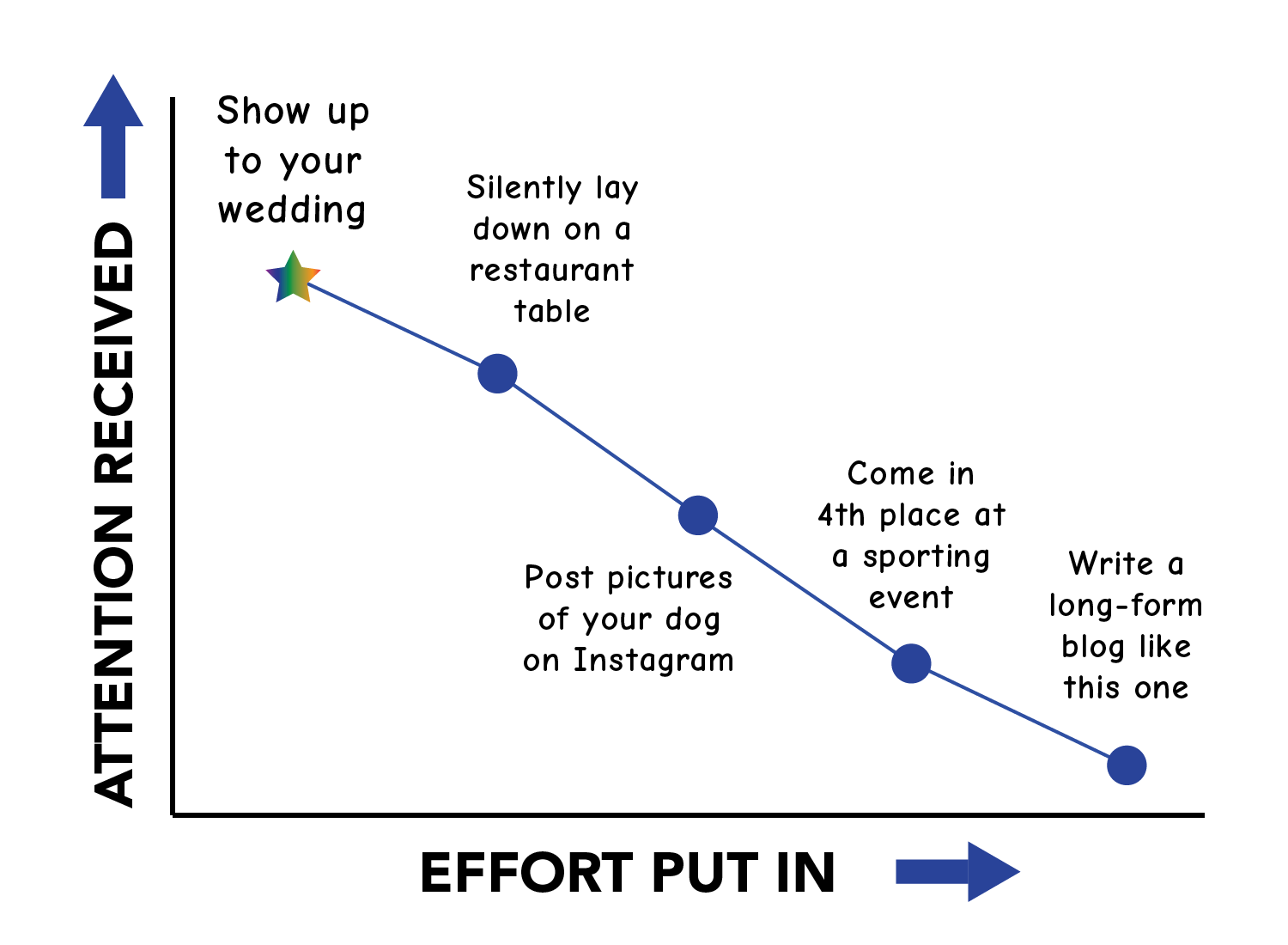
There’s nothing quite like a wedding that screams out, “Look at me!” while getting rewarded for it. I mean, you literally get a standing ovation for walking in a straight line down an aisle – the last time that probably happened was when you first learned how to walk.
Reason #3: You get to spend a grand total of 2 minutes with each guest.
I never understood the reason why you would invite 100+ people (some even go upwards of 300+), only to find yourself in a whirlwind of greetings and pleasantries that average out to spending ~2 minutes per person. What’s the point of bringing all of your closest loved ones to one location, only to have them congeal into one massive blob that strips away the unique dynamics you share with each person?
The more logical solution would be to take a small number of guests out to nice dinners to celebrate your marriage, so you could actually enjoy the extended company of those loved ones. Not only would you be able to celebrate your marriage in a way that only this particular set of loved ones can offer, but you’d also probably save a lot of money as well.
I’m sure you could think of many other reasons why having a wedding sounds like a bad idea, but those three reasons were the most compelling for me.
At this point, you may be asking, “Dude, if you had such an anti-wedding sentiment going into this whole thing, then how the hell did you and your wife even decide to have a wedding to begin with?”
Good question.
Even though I did feel strongly about the general qualities of weddings, I understood why our families and loved ones would find a day like that important and valuable. It was something that I understood in theory but couldn’t quite validate through personal experience (kind of like my understanding of E=mc^2), and I didn’t want to deny them the opportunity to be a part of something special based on some ungrounded opinions I had. It also helped immensely that our parents are not overbearing and controlling people, and didn’t try to make us do anything that we didn’t want to do.
With that said, this still didn’t change the fact that I largely saw the wedding as something that just needed to get done so everyone can get together and have a good time. In order to do this properly, my wife and I had to send invites, book things, and plan stuff, which involved some undercurrents of stress and urgency as June became July, and July rapidly became August.
Then, next thing I knew, it was the morning of August 12th, the day of the wedding.
Since I ran out of things to tell myself, I settled upon the cliched mantra of “Be present,” and went out to experience the day:
Wow.
I’m not going to bore you with the details of the wedding, but in summary, it was 14 hours of whirlwind fun, happy tears, and good vibes. It’s tough to describe the experience without using an array of cliches, but it was indeed something quite special.
After a sustained outpouring of emotion like that, it’s natural to walk away from that experience thinking the whole thing was fucking amazing. All the good music, the dancing, the congratulatory messages, the repeated exclamations of “I love you”s that are usually pushed down to the depths of the soul… this all leads to a dopamine rush that can color your experience of the entire day.
Even though I intuitively felt like the wedding was great, I wanted to give some time to reflect on it because sadly, our memories aren’t as reliable as we’d like them to be. You see, when you experience a blend of events all at once, the mind has this tricky tendency to pick a few emotionally charged moments, and have them define your memory of the experience as a whole.
For every photograph of my wife and I laughing wildly at our wedding, there was an uncaptured moment from months prior where we were back at home, stressfully planning the logistics of the entire day. For every loved one throwing their limbs out on the dance floor, those very limbs were stuck on a crowded airplane a day earlier, flying out to Vancouver to come and spend the day with us.
Like all notable experiences, the process of having the wedding was a landscape of peaks and valleys, and I needed to take a step back to see if the whole thing ultimately made sense.
Is a wedding the greatest example of people profiting off a loophole in our psychology? Is it really an outdated cultural artifact that is kept in place by our need for social approval?
Or is there something more to weddings that is truly special for the couple? Is there really a unique kind of wisdom that can be gleaned through having a wedding?
After much reflection on the totality of the experience, it’s clear to me that the latter is true. Here are three reasons why.
Why I Think Having a Wedding is Very Important
Reason #1: You officially become a significant investment in everyone’s Happiness Portfolio.
As I grow older, one thing is becoming very clear:
The most valuable resource we have is our time.
Some may argue that money is more important, but what more is money than a crude surrogate for our time?
We give money to restaurants because we don’t want to spend the time required to make that delicious food ourselves. We hire someone to build a website so we don’t have to spend the time learning how to do it. And we ourselves are hired to spend a number of hours each day at work, trading our time to do things that someone else would rather not do.
Time isn’t money. Time is attention, and how we spend it will dictate the direction of our lives.
However, a lot of the time, we are simply trading it for something we just want to get done: spending an hour at a restaurant for lunch, searching online for a new pair of shoes, working somewhere solely for the paycheck, the list goes on. I call these sorts of exchanges time expenditures, where each unit of time is spent for an immediate, expected return.
But not all time is spent equally. There are certain areas of our lives where the preciousness of time is heightened, and this awareness allows you to approach the concept of time more mindfully. Not only are you more aware of how you’re spending it, but you are much more grateful when others give it to you as well.
I like to call these moments time investments, and this is when you dedicate sustained periods of time to certain people or endeavors that bring you long-term satisfaction. The return you get from this investment does not come immediately, but more so as a consistent, ever-morphing route toward happiness from spending your time intentionally. When we spend time doing challenging yet meaningful work, or make time to see the friends we truly love, we are investing our precious resource to cultivate trust within these spaces.
Each of these investments collectively fall into what I call the Happiness Portfolio.
All of us have one, but the contents vary. Inside this portfolio is a mixed bag of loved ones, work endeavors, and interests that we invest our precious time into. This is akin to the individual companies people invest in when building their stock portfolios, but I’d argue that the Happiness Portfolio is way more consequential. Successful stock investments yield wealth, but successful time investments yield meaning.
As a couple, there are many ways to build your collective Happiness Portfolio, but the best way to do it is to spend time with the people you love. Maybe you’ll host a family dinner for someone’s birthday, go to a friend’s place to play some board games, and so on. The reason why this is so effective is because not only are you investing your own time, but you are also receiving an investment from the people you care about the most too. Your bond with your partner is reinforced by people that truly want the best for you, as the success of your partnership directly contributes to the success of their own Happiness Portfolios as well.
While you can see glimmers of this on a day-to-day basis, nowhere is this more apparent than on your wedding day. If having meals with your friends here and there are like small investments that add up in your Happiness Portfolio, your wedding day is like having a huge IPO (going public on the stock market), where you receive a massive investment of time and love from the people you care for the most, all on one day.
Your friends and family are gathered in one space, many of whom would have no reason to interact with one another if it weren’t for you and your partner’s collective existence. They could quite literally be anywhere else in the world at that moment, but they have chosen to invest their most precious resource – their time – into celebrating a union that they genuinely hope will endure for a lifetime.
This point was particularly poignant for my wife and I because 95% of our guests had to fly in from somewhere else to get to our wedding in Canada. We were unable to have our wedding in our country of residence (the United States) for a variety of logistical reasons, which meant that most guests would have to take a series of extra steps and book flights, find accommodations, adjust work schedules, etc. to attend the wedding. In fact, this would be the first time many of our guests ever stepped foot in Canada, and we were the reason why.
So knowing all this, I felt an overwhelming wave of gratitude sweep over me when I saw all the faces gathered together on that Sunday afternoon. To know that each face represented an effortful intention to be there, that coming to the wedding meant going through that daunting machine in the airport where you throw up the Jay-Z ROC sign, that you had to coordinate with other friends to find an Airbnb to stay at, that many people flew in early to help us with last minute preparations… all these things made me feel like we were receiving a piece of everyone’s time and love in a truly visceral way.
It really struck me then that a wedding is not about you nor your partner – it’s about everyone else. It’s to celebrate the impact your loved ones have had on your ability to grow together, and reaffirming the investments in one another’s Happiness Portfolios. Sure, you might only get to spend 2 minutes with each guest during the course of the wedding, but that loved one gets to spend a whole day understanding the foundation of who you truly are through your precious relationships.
A wedding is not about raising the egos of you and your partner, it’s about sincerely thanking everyone for shaping you into the people you are today.
Reason #2: A wedding solidifies your union into a concrete memory of support.
Despite our ability to think our way through problems, humans are pretty bad at abstraction; we usually like something concrete to ground our ideas and beliefs onto. That’s why governments have presidents, religions have gods, companies have logos, and so on.
And similarly, when it comes to our experiences, we anchor them in the form of our memories. Our day-to-day experiences are simply too varied and vast for our minds to retain all of them, so we tend to symbolize them through the storage of a memory about it.
Daniel Kahneman, the Nobel Prize-winning behavioral economist, formalizes this concept as the “experiencing self” versus the “remembering self”. The experiencing self knows only the present moment, while the remembering self represents the story that is told about that event.
We tend to prioritize the importance of the present moment (the experiencing self) over the recollection of it (the remembering self), which is something Kahneman himself agreed with for a long time as well. However, in a recent conversation, he stated that he has since changed that belief because it contradicts what people really want when it comes to life satisfaction:
“[I once believed that] if you want to make people happy, you should improve their experiences. And eventually, I gave up on that. That’s one of those occasions where I was forced to give up an idea that I had cherished. And I gave it up because this is clearly not what people want to do.
People actually want good memories; they want to be satisfied with their life. They’re not thinking of the future in terms of experiences, they’re thinking of the future in terms of anticipated memories. And you can’t have a theory of well-being that doesn’t correspond to what people want.”
While you may or may not agree with Kahneman here, I think his point is especially poignant when explaining why having a wedding is so important. The experience of having the wedding really is a blur because each moment moves so quickly, and your mind will have a hard time processing everything that’s happening. You can be grounded in the present throughout the entire day, but still miss 80% of what’s going on all around you.
The importance of a wedding is more about the memories you store about it, and what that symbolizes for you and your partner moving forward. The day itself serves as a big experiment that helps to answer some key questions for the road ahead:
Do our friends support our growth, both individually and collectively?
Do our families respect one another, now that we are unified?
Do we have one another’s back, wherever we choose to go?
A wedding is probably the only event where all three of those big questions can be simultaneously answered in a way that you truly feel it. The answers won’t hit you like a tidal wave, but instead you’ll receive them piece-by-piece as the day progresses. And the more concrete the “Yes”es are, the more empowering the wedding becomes as a long-standing symbol of support.
This powerful symbolism of the wedding is what makes it so important well after the day has passed. It marks a moment in time when the net of support has been cast, with each of your loved ones acting as a node in this net. It’s something you can reference as you move forward with your partner, especially as you start making some big life changes (leaving a job, moving to a new city, having children, etc.), which become way less scary when you unquestioningly know that you have one another’s back.
When I look at the photos from my own wedding, I see them as little totems that remind of the net of support I’m so fortunate to have. It’s easy to go through most of your days without thinking of this, but the wedding is a continuous reminder that a mental portal to it will always be accessible.
(Reason #3) Planning the wedding reveals a lot about each other’s priorities and values.
I used to believe that the spectrum of wedding budgets looked like this:
However, I realized that in reality, it looks more like this:
It can range anywhere from throwing a small backyard BBQ with your loved ones present, all the way to having a ceremony in a castle overlooking the shores of Spain. Both of these scenarios are weddings where a ton of fun can be had, and none of them are inherently better or worse for the couple.
What ultimately matters here is what you and your partner want, and throwing a consequential event like a wedding brings your individual priorities to the forefront quite quickly. It’s probably safe to assume that putting together a wedding will be one of the biggest public projects you two will ever work on, and this collaboration yields many interesting insights.
Planning a wedding serves as a good litmus test for some of the most important things you two will address throughout your relationship:
(a) How do you communicate your frustrations to one another?
(b) How do you celebrate your small victories?
(c) What does money mean to you, and how well do you budget it?
(d) How do you handle disagreements between the people that are most important to you?
It’s funny how weddings are something we do to signify the start of a marriage, instead of something we do to celebrate the end of a successful one. Usually we work up to the difficult questions in life, gathering the skill sets required to answer them through years of experience along the way. However, marriages start by tossing the couple into the deep end of the pool, forcing them to work through challenging situations right away.
This is probably why so many couples use the word “stressful” to describe their experience of planning the wedding. Not only is there a lot of stuff to coordinate and do, but they also have to navigate some uncharted territory when it comes to understanding their partners’ needs, priorities, and values. The challenge of being someone’s boyfriend may have been about putting the toilet seat down after taking a piss; the challenge of being someone’s husband is about fostering a healthy relationship with the in-laws. Some next level shit right there.
As the expectations of yourself and others mount, it will become apparent that you and your partner are aligned on certain things, and not on others. When this happens, it’s best to become aware of what they are and pinpoint these asymmetries, as they are likely to have greater implications that extend well beyond your wedding day.
One way I like to think of this is to take the spectrum above, apply it to some of the other questions I listed earlier, and map where you’re both at. For example:
How do you communicate your frustrations to each other?
What if your parents don’t agree with the direction of the wedding?
How well do you budget your funds?
What you’ll notice is that these are some important questions that will steer the course of your marriage, as they apply to almost everything you’ll do together. They will drive the smallest decisions like which restaurants you frequent, to the kinds of cars of you buy, all the way to the biggest things like how to raise your children. And sometimes, it may surprise you to realize how unaligned your views are on some really important things.
Of course, you don’t need to have a wedding to illuminate the answers to these hard questions. A lot of them can be unearthed simply as you go about life together, experiencing them as you go. However, if you’ve decided to have a wedding anyway, this is an amazing opportunity to face these questions head-on and find where you both stand on these respective spectrums, and see which areas may need a lot of work. Going through life together on opposite sides of these spectrums is probably a super shitty experience, so getting a comprehensive sampling of it sooner than later is a good thing to do.
It’s clear that the choices you make in your wedding ripples outward to other life decisions as well. For example, my wife and I wanted to put our families (specifically our parents) at the forefront of our wedding banquet, and made a concerted effort to structure it that way. Fast forward to now – my wife and I have left California to spend a prolonged period of time in Korea with family. Another thing is how we viewed money for the wedding. We made it a point to stay within the budget we set, but weren’t a stickler for every dollar going out; this perspective has translated into how we manage our collective finances today.
And also, I learned a lot from our asymmetries as well. I once flipped out at her because she told me the pants I ordered for the wedding weren’t the greatest fit, instead of taking a step back and realizing that I just flipped out because of some fucking pants. It helped me realize that when it came to stress, I still had some work to do, and this point has actually stuck with me even to this day.
The process of planning and having a wedding will reveal many things about yourself and your partner – some will be good, some will be bad, but most will be worthwhile lessons to explore.
As someone who used to be adamantly against having a wedding, it turns out that the main reasons I thought weddings were dumb don’t hold too much weight after all. Weddings are only super expensive if that’s what you and your partner want (we didn’t), they’re ultimately about your loved ones (not about your ego), you get to reaffirm your net of support through a full and abundant Happiness Portfolio, and you get to answer some difficult but necessary questions about yourselves through the process.
The hardest part about having a wedding is not the wedding itself, but having the right person there beside you on that day. Choosing to spend your life with someone can be a daunting decision, but if done mindfully, it can be immensely empowering and awesome.
So if you’ve chosen correctly, then it doesn’t matter where you decide to have the wedding or how you put it together.
Just be prepared to have a great time.
_______________
